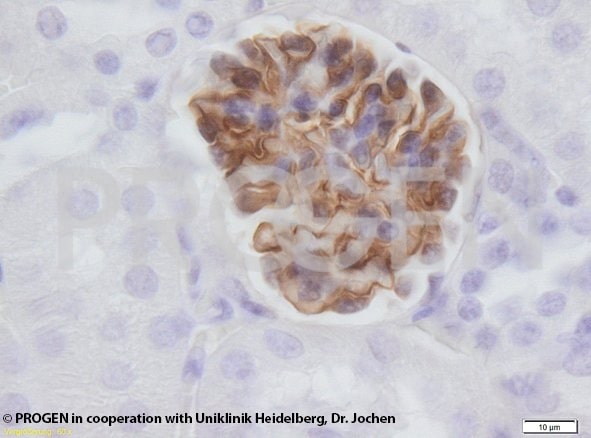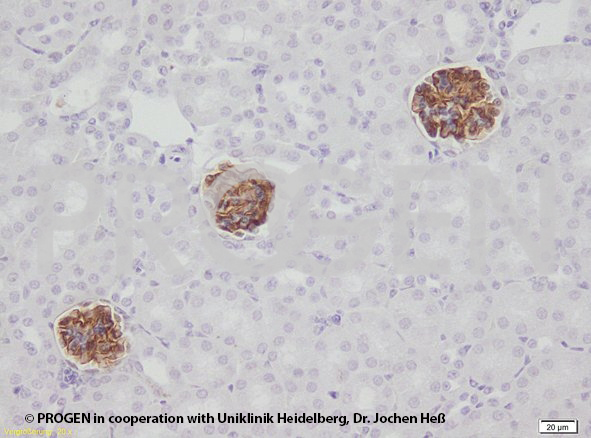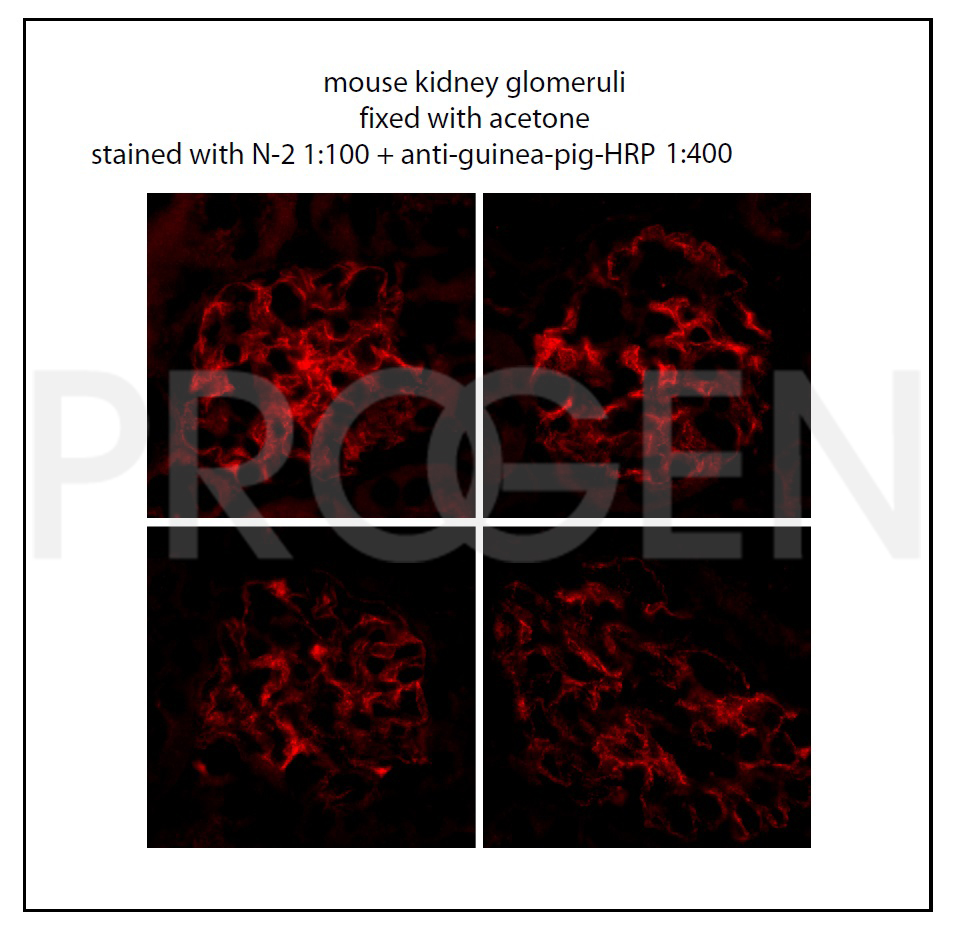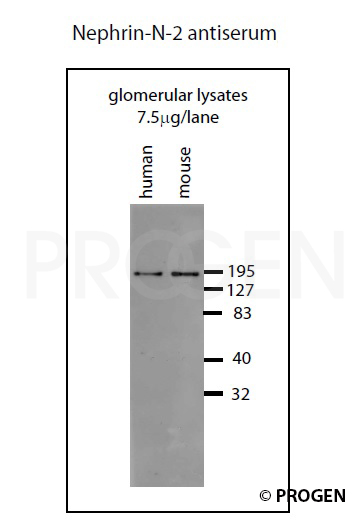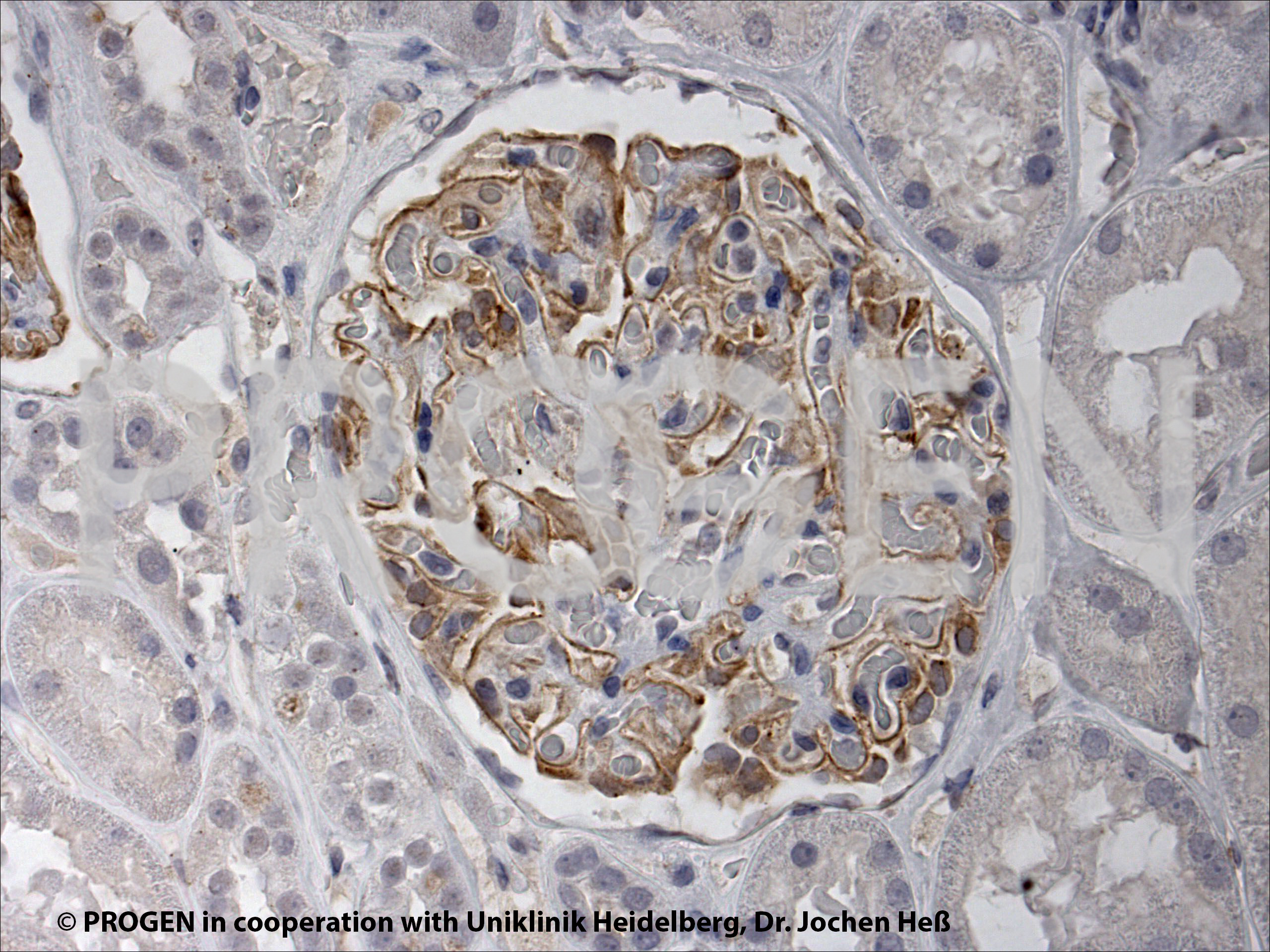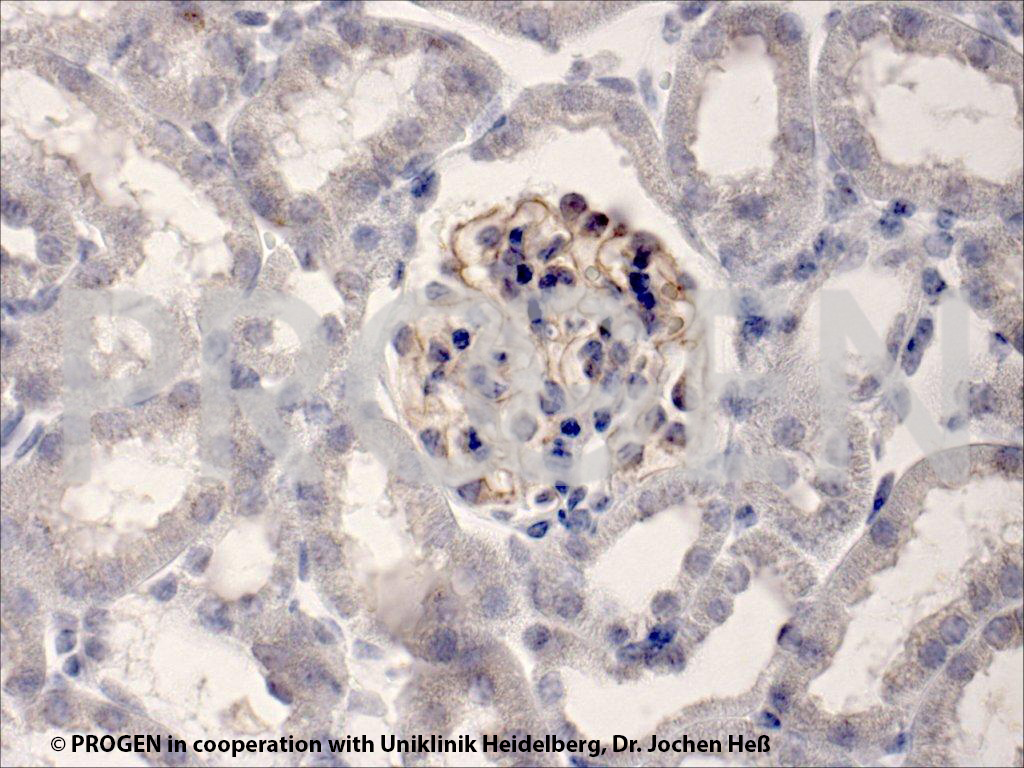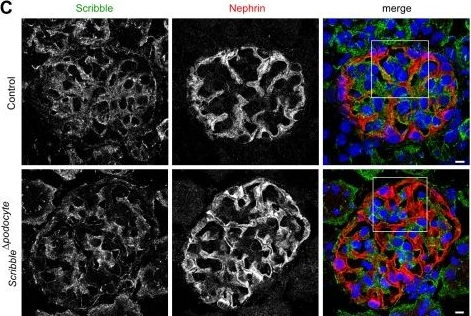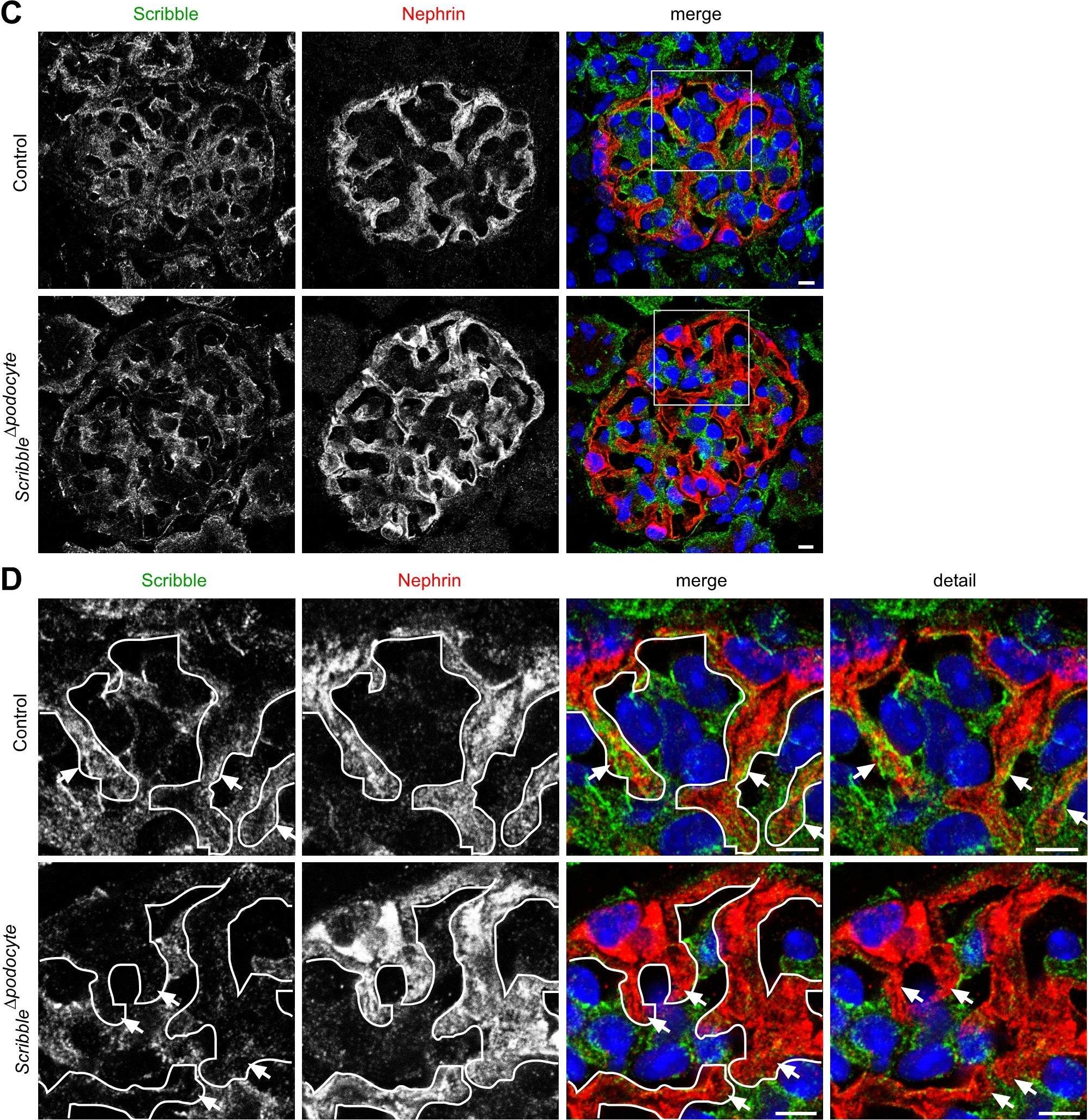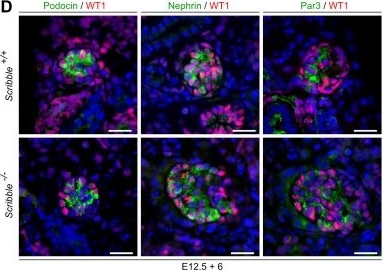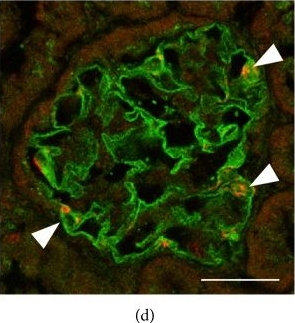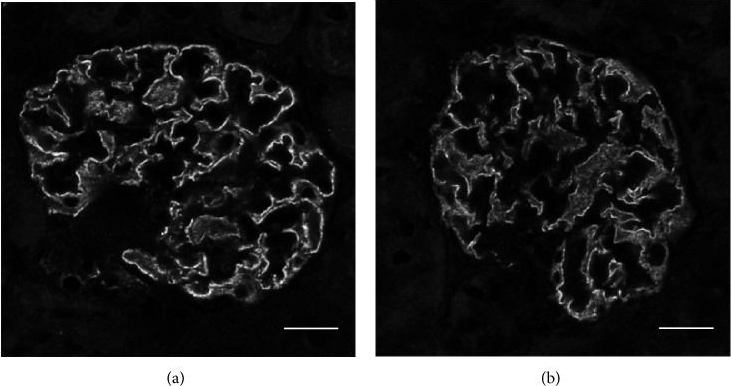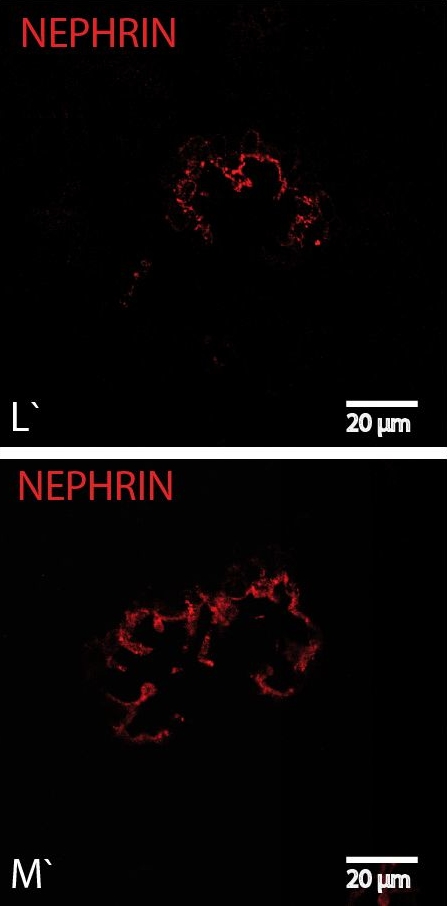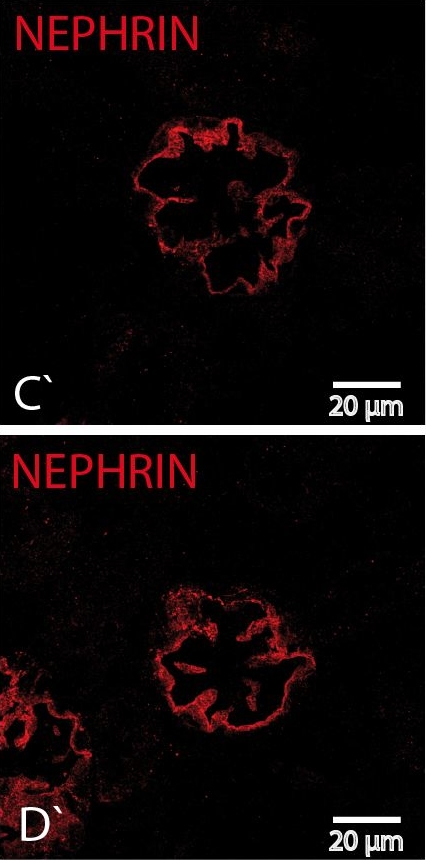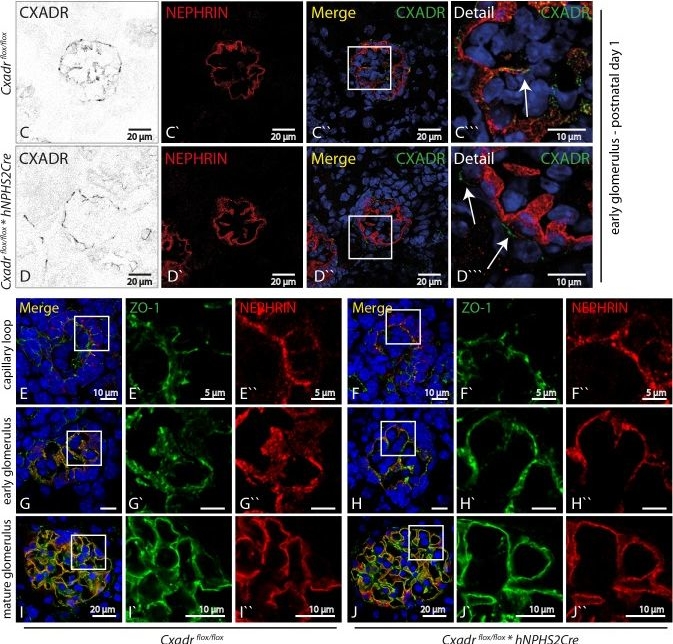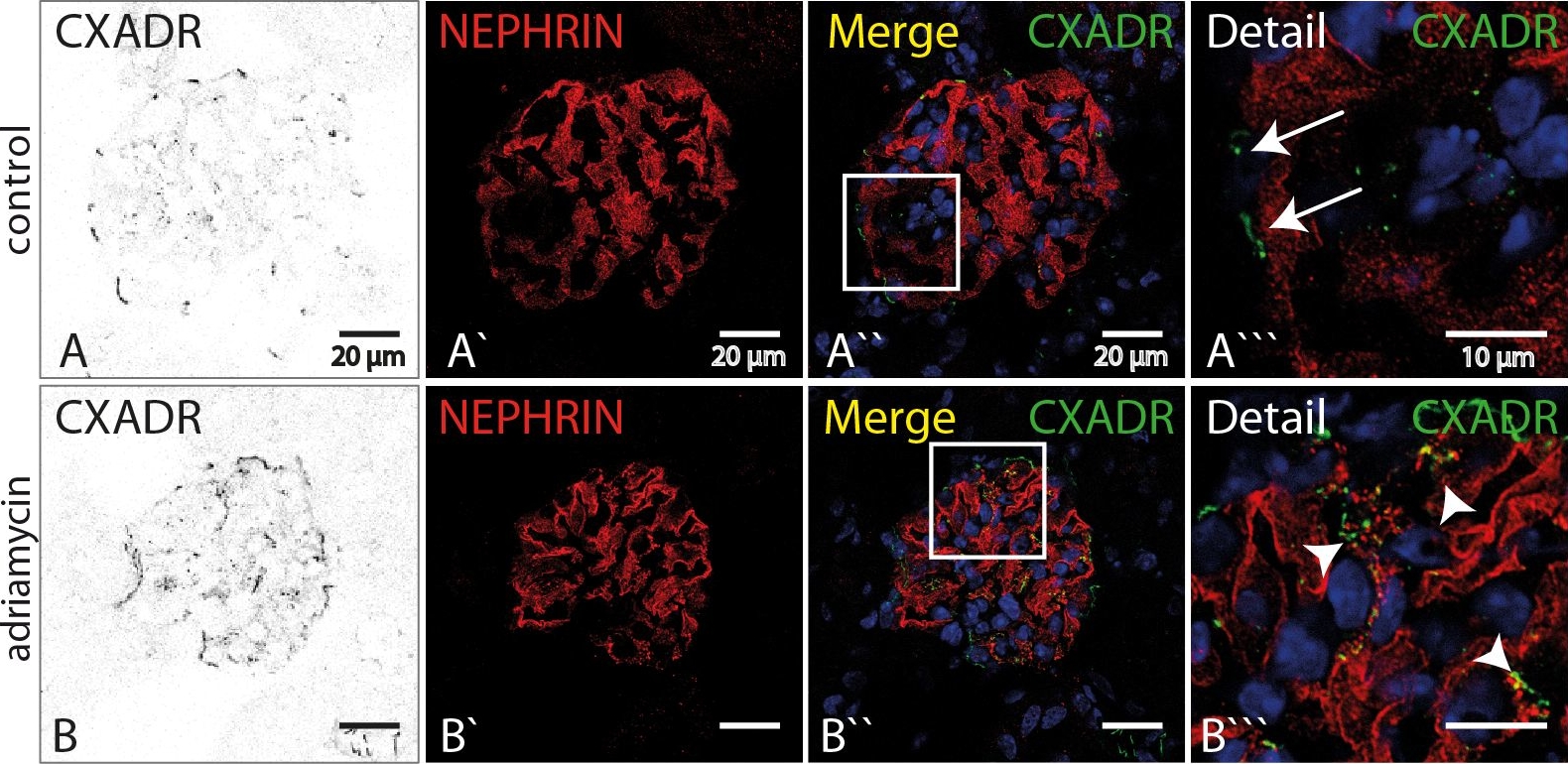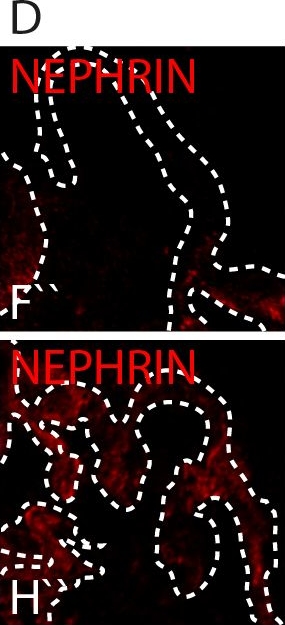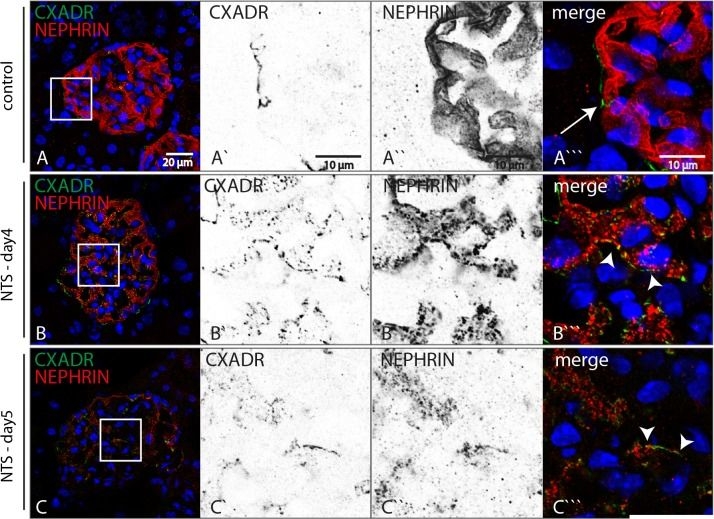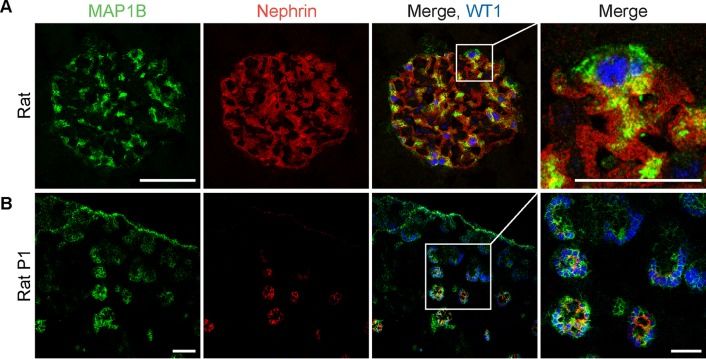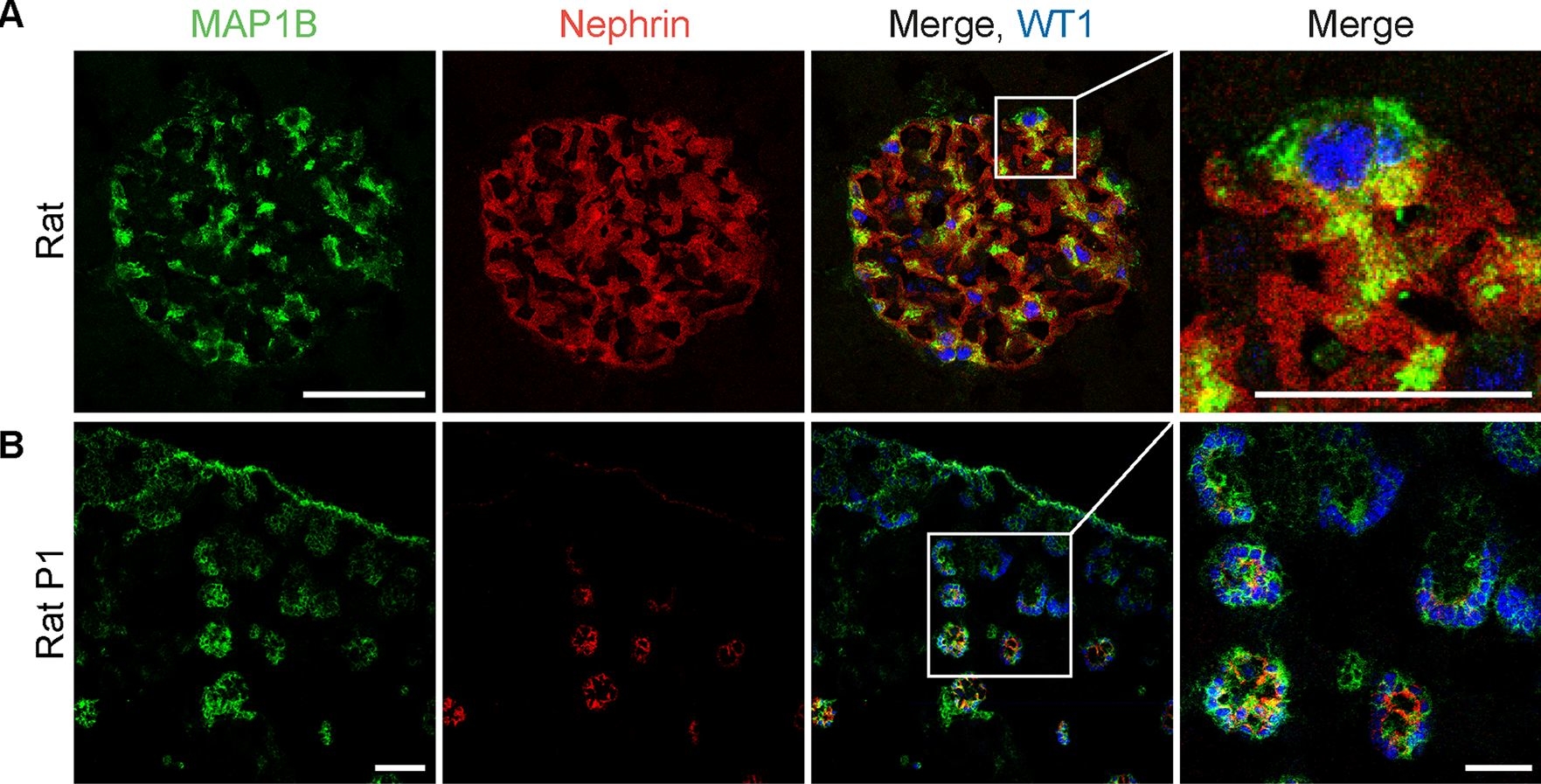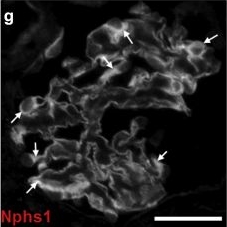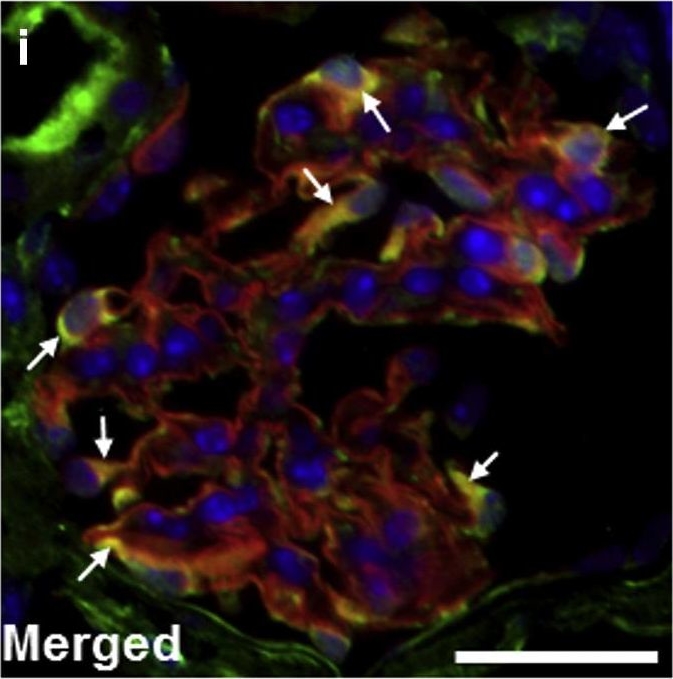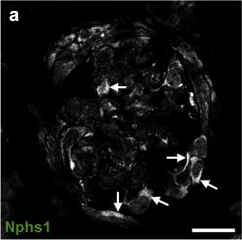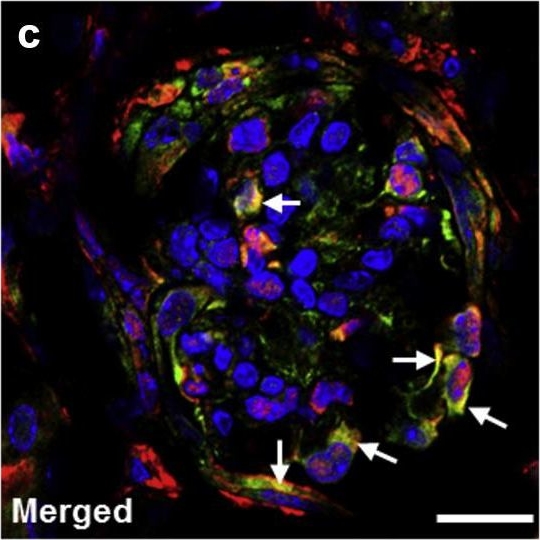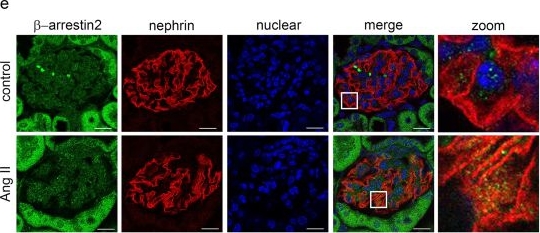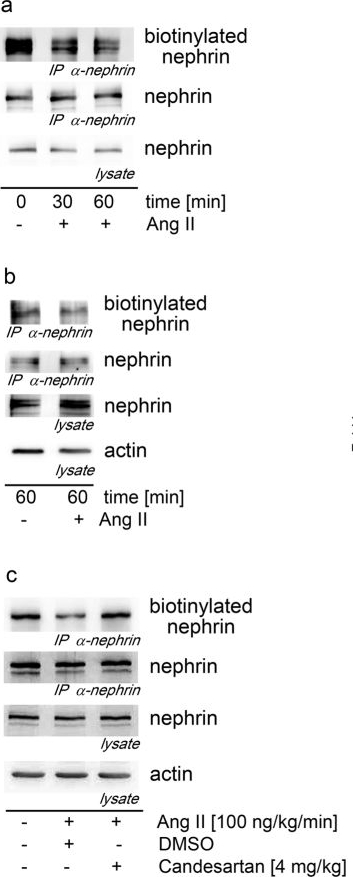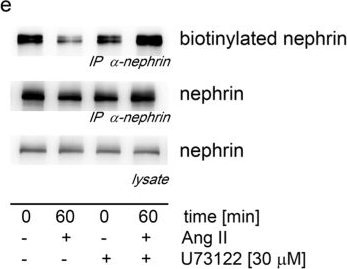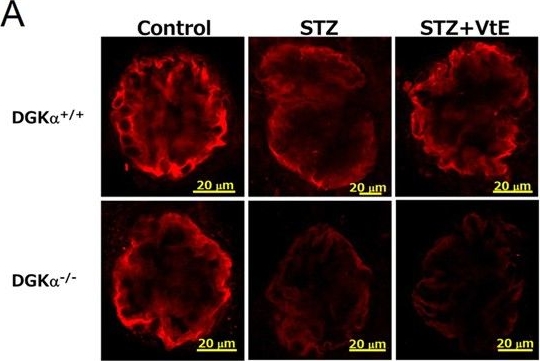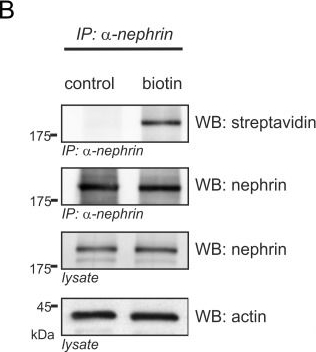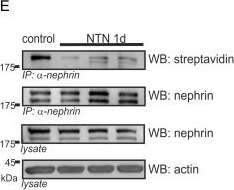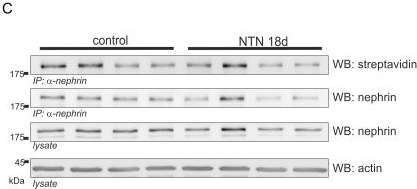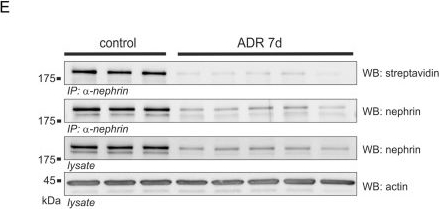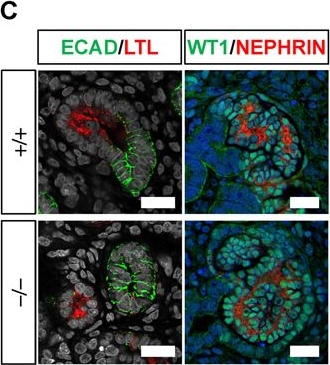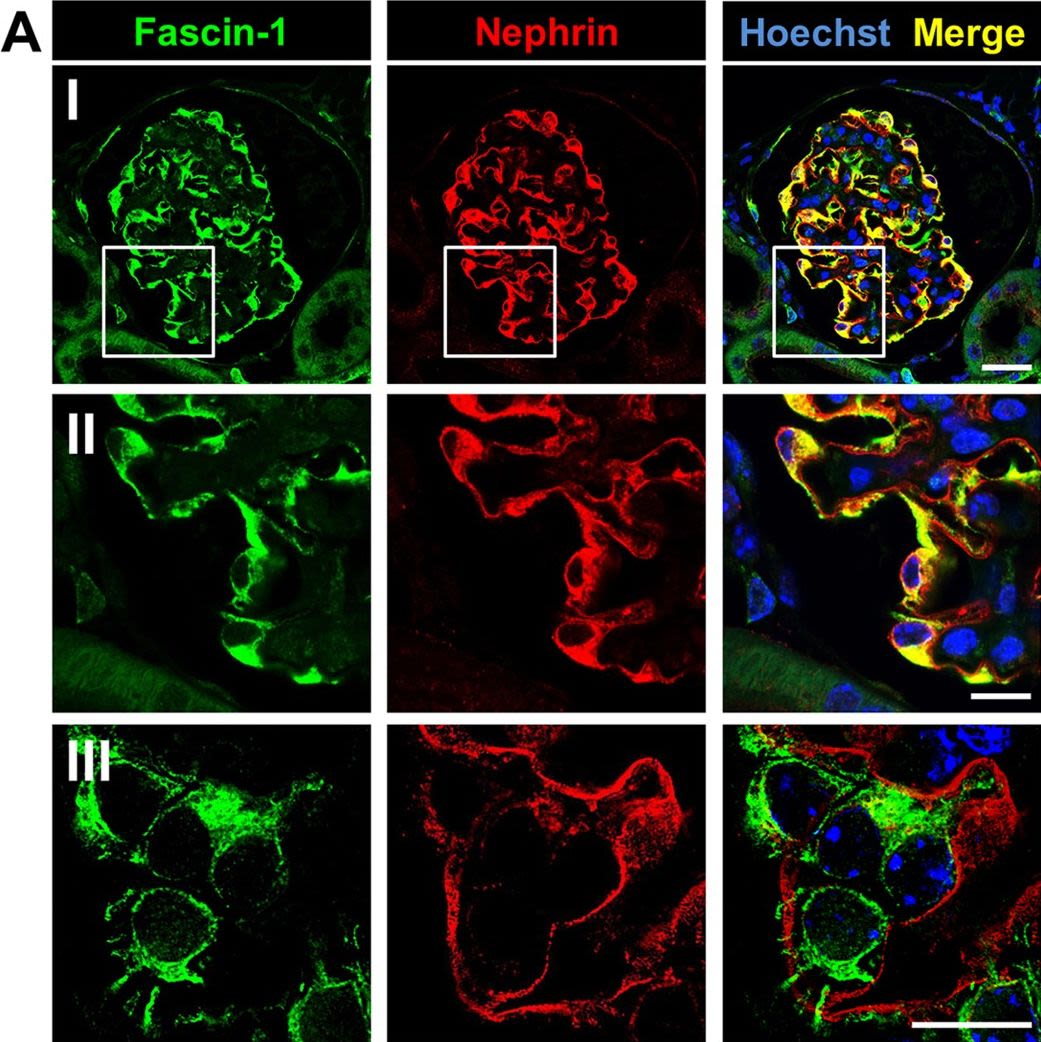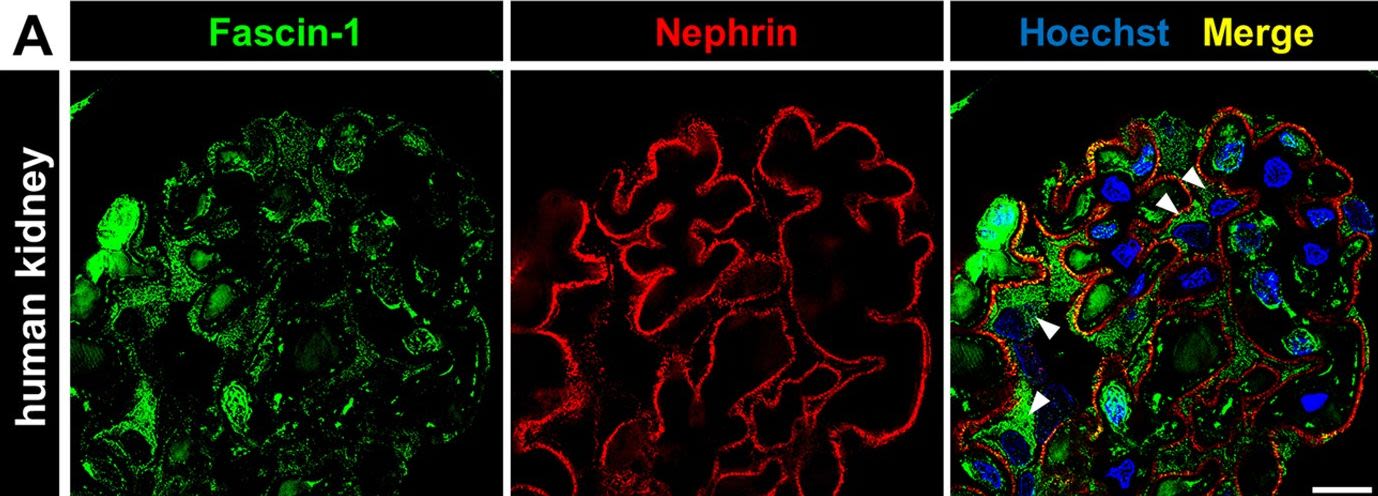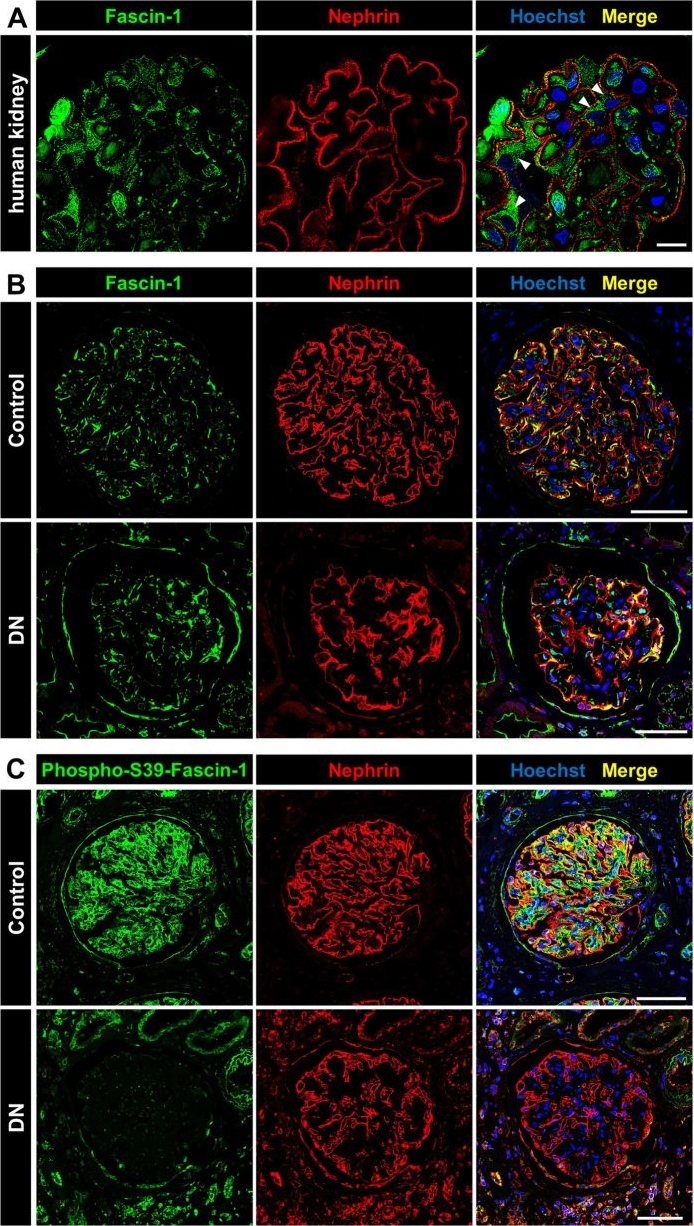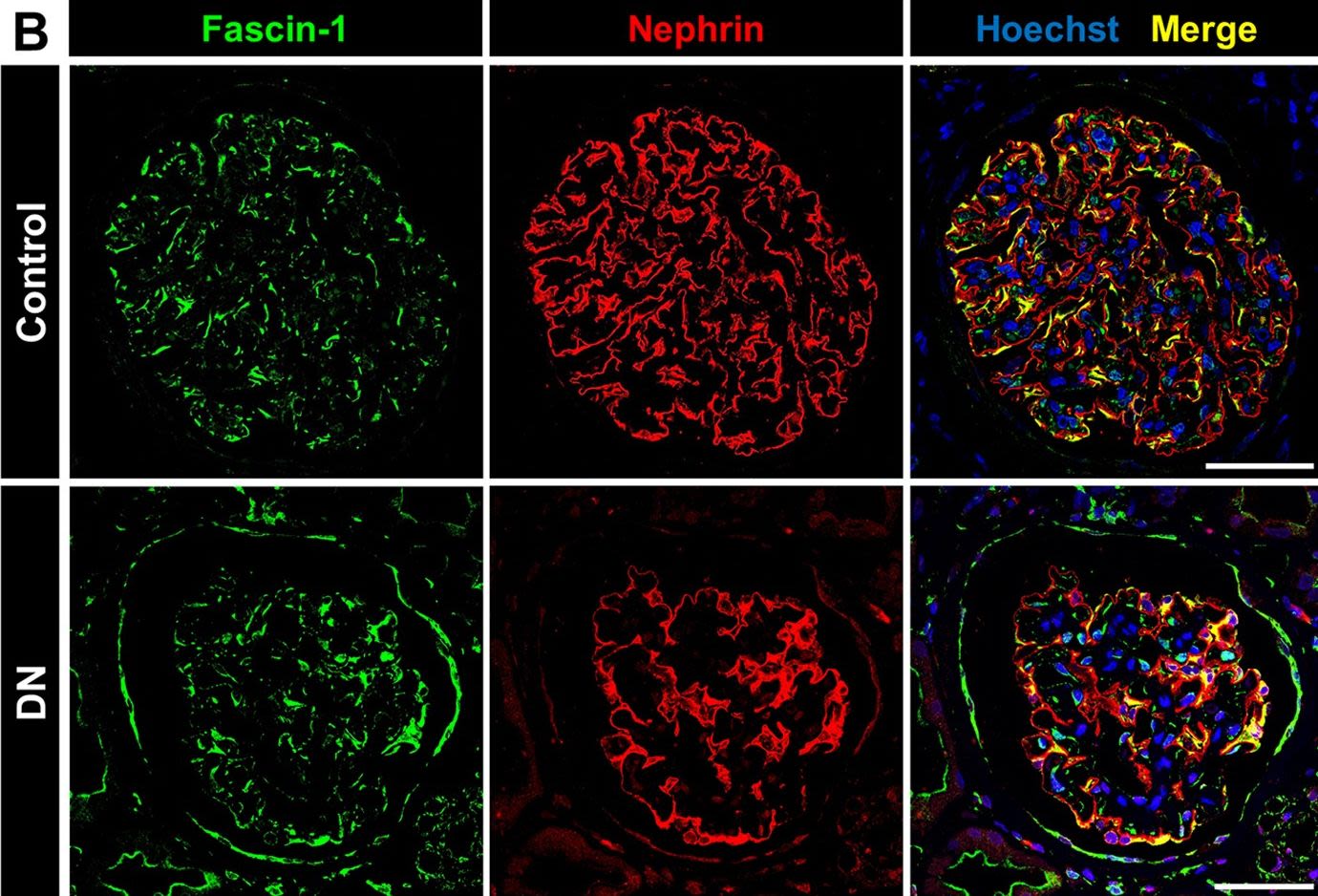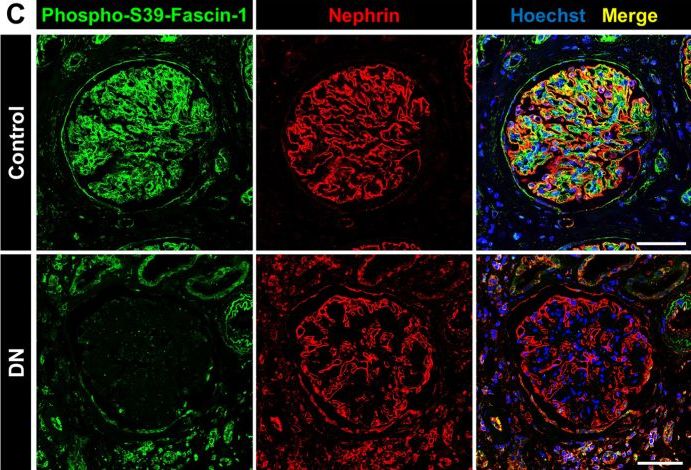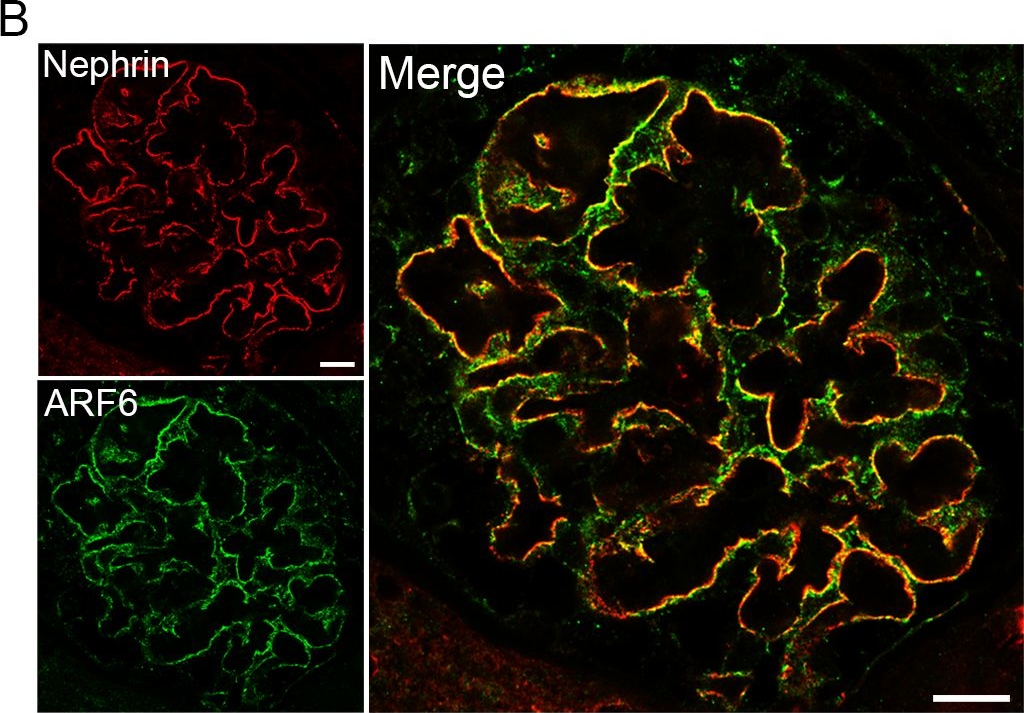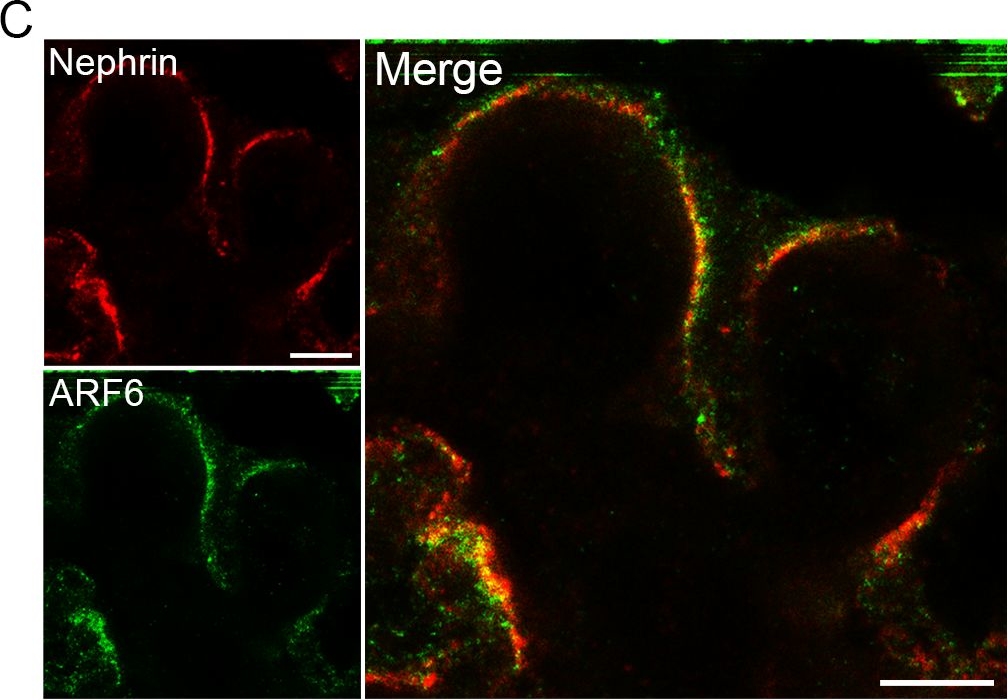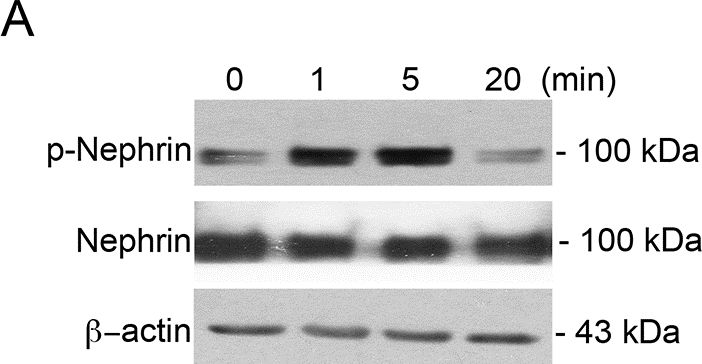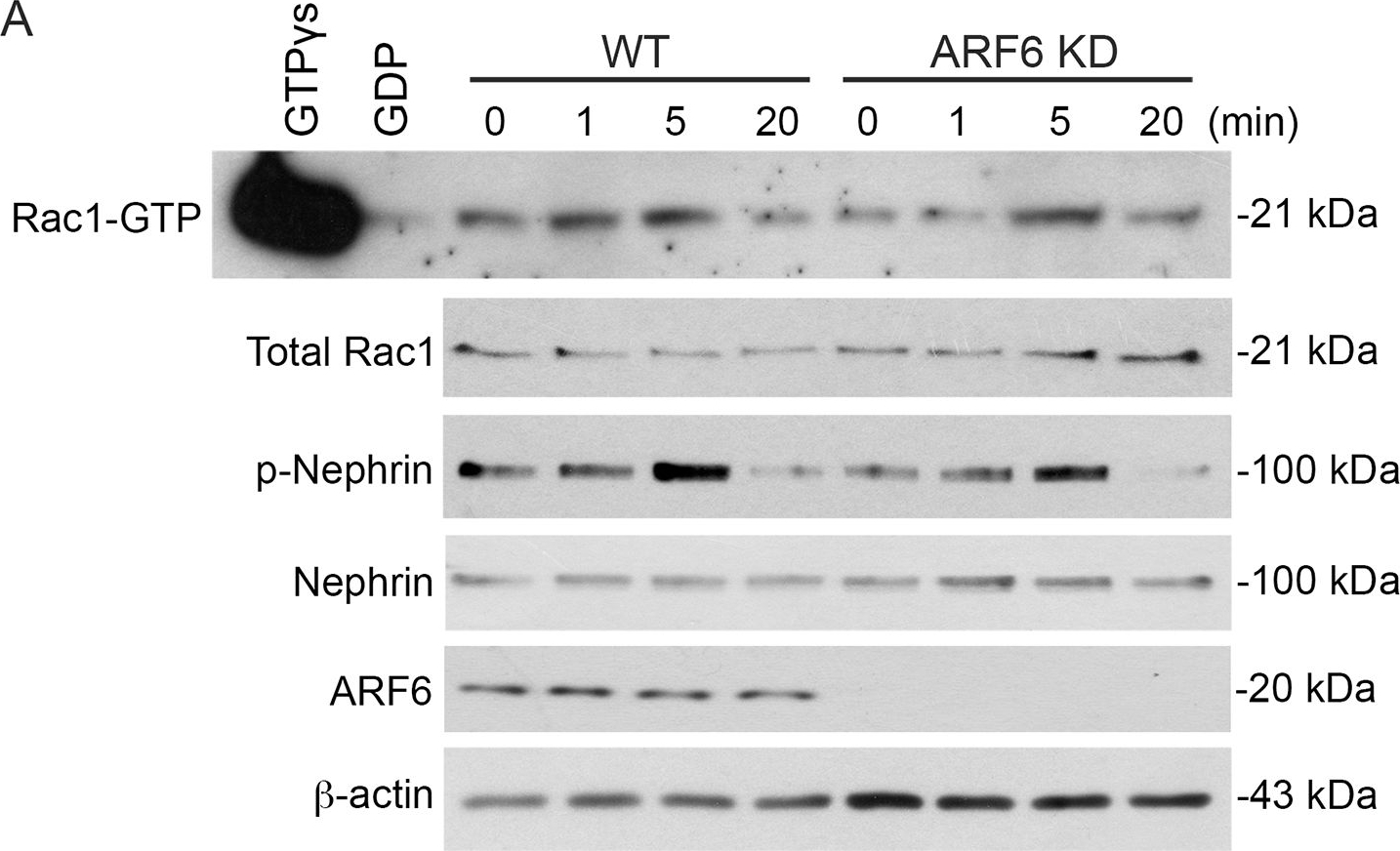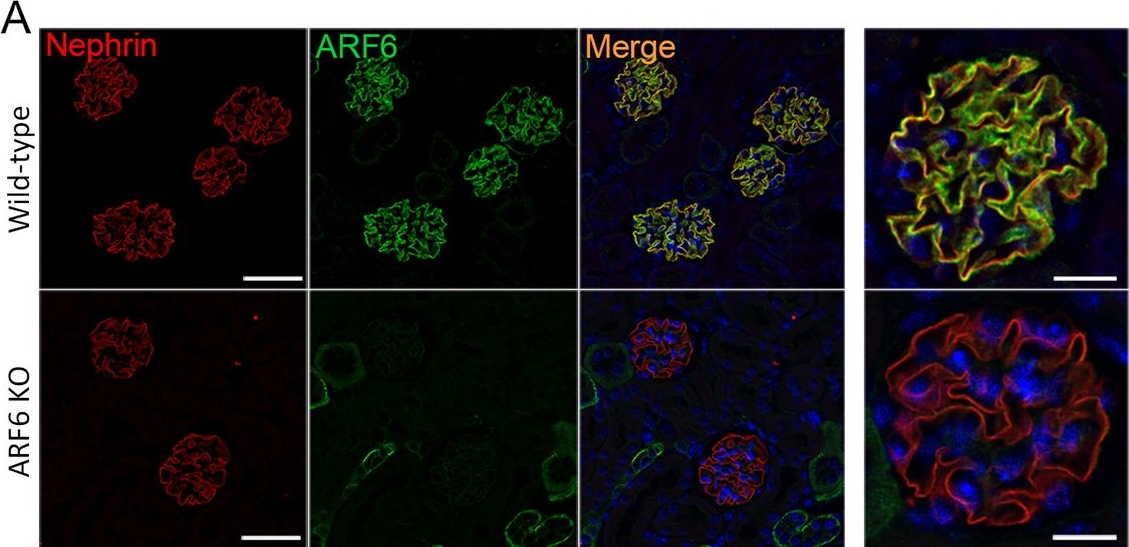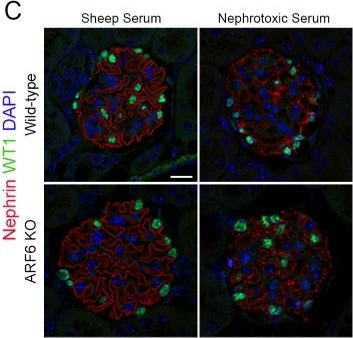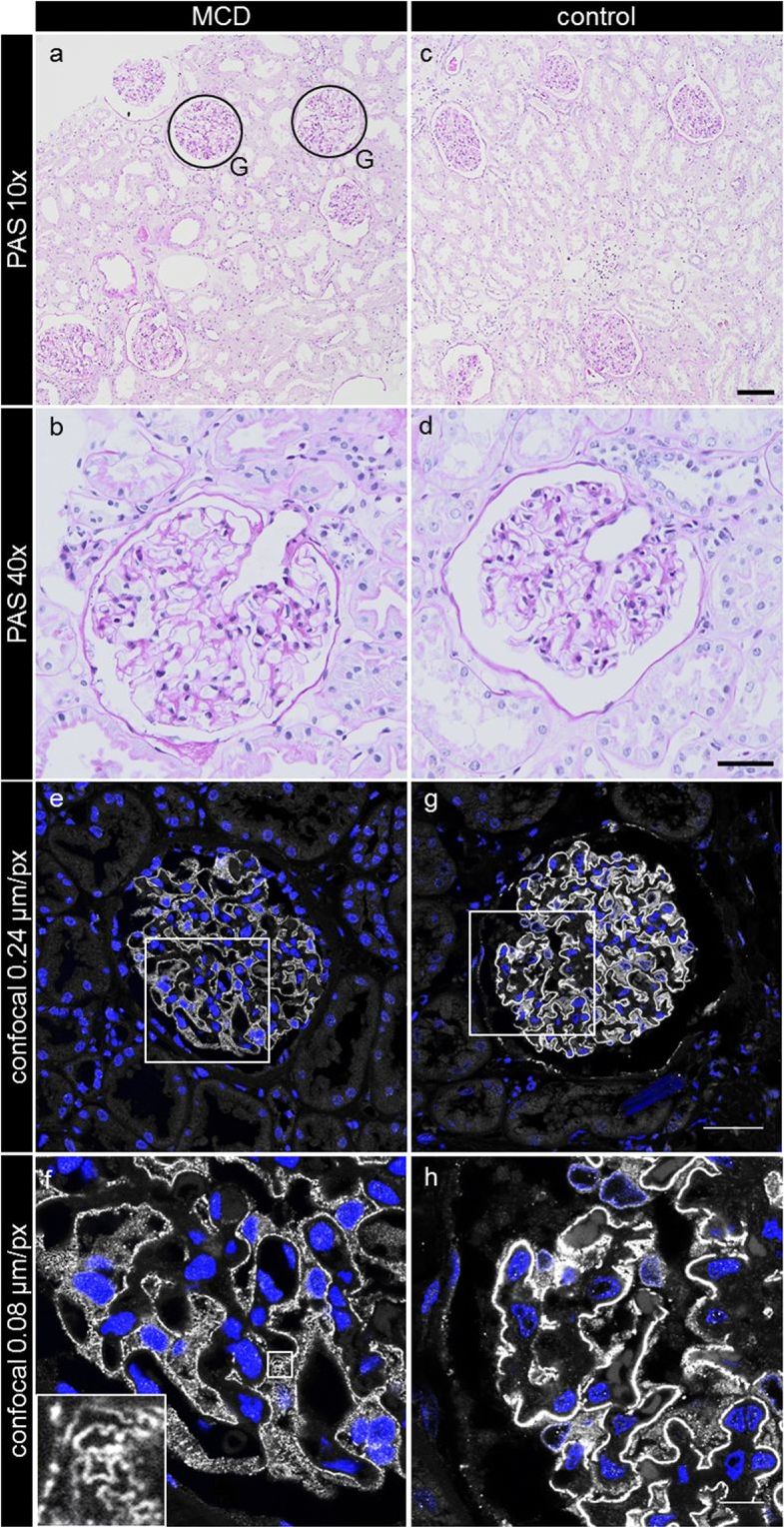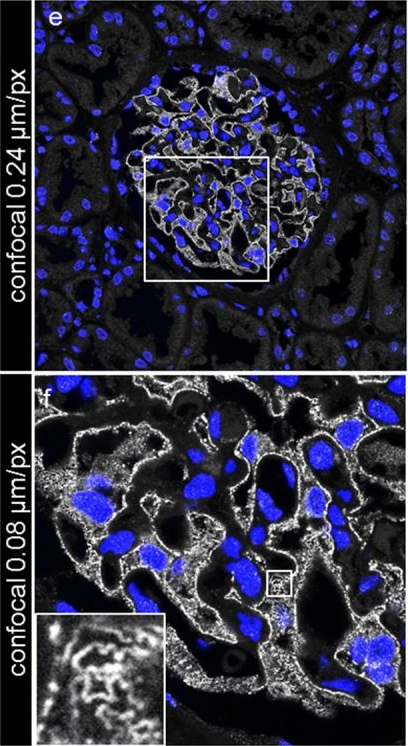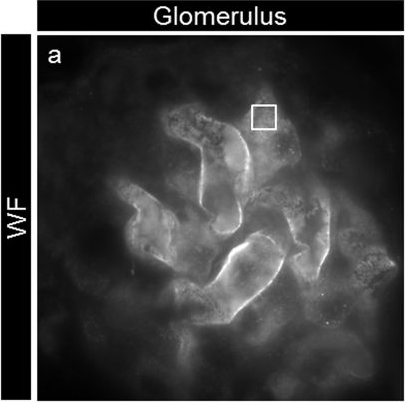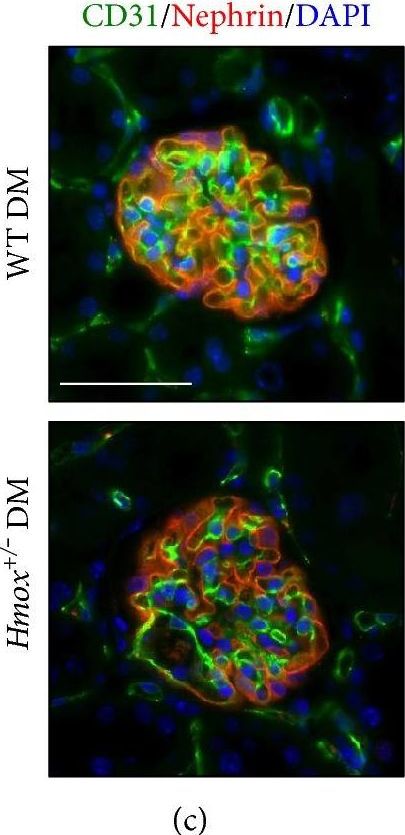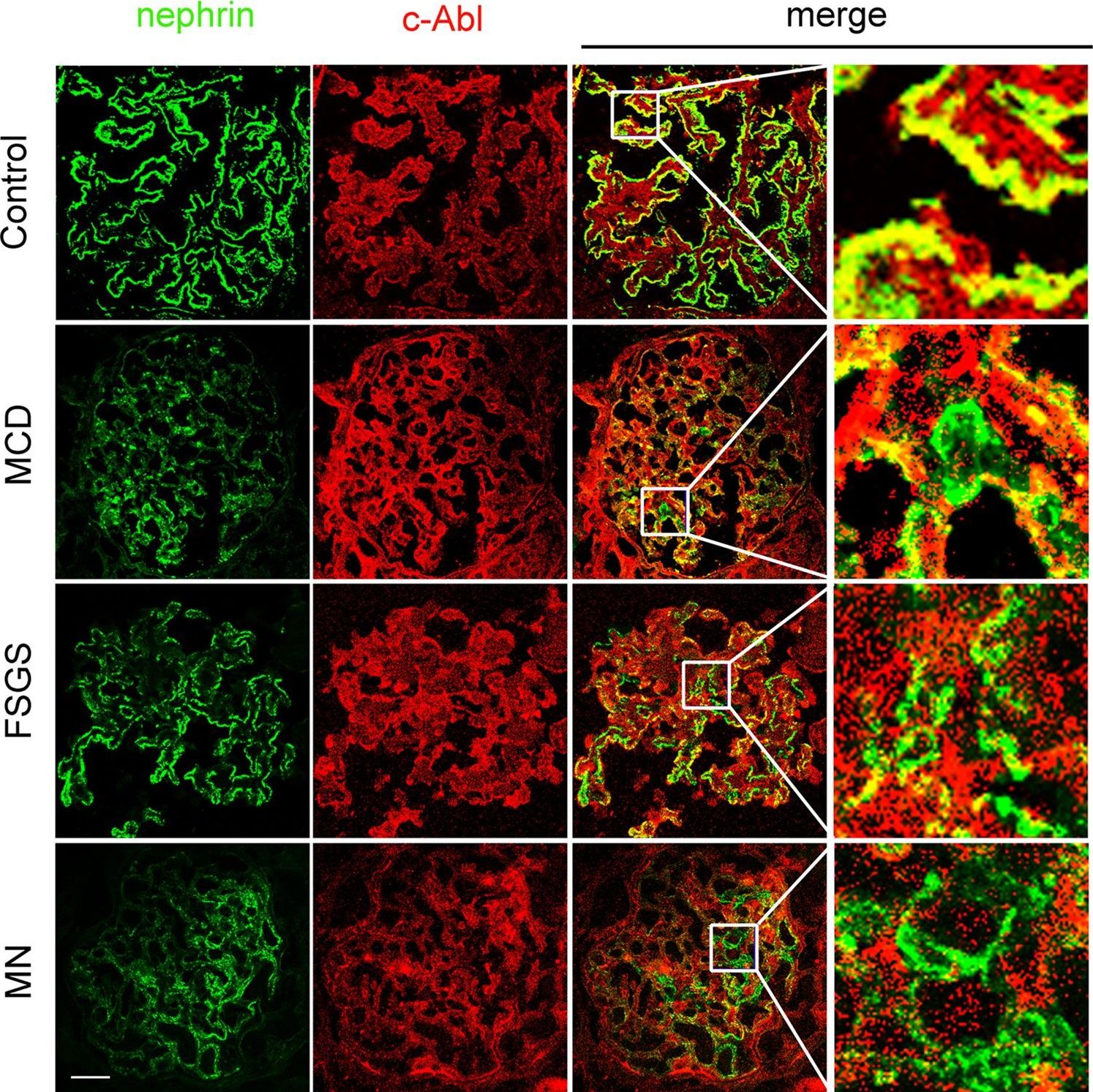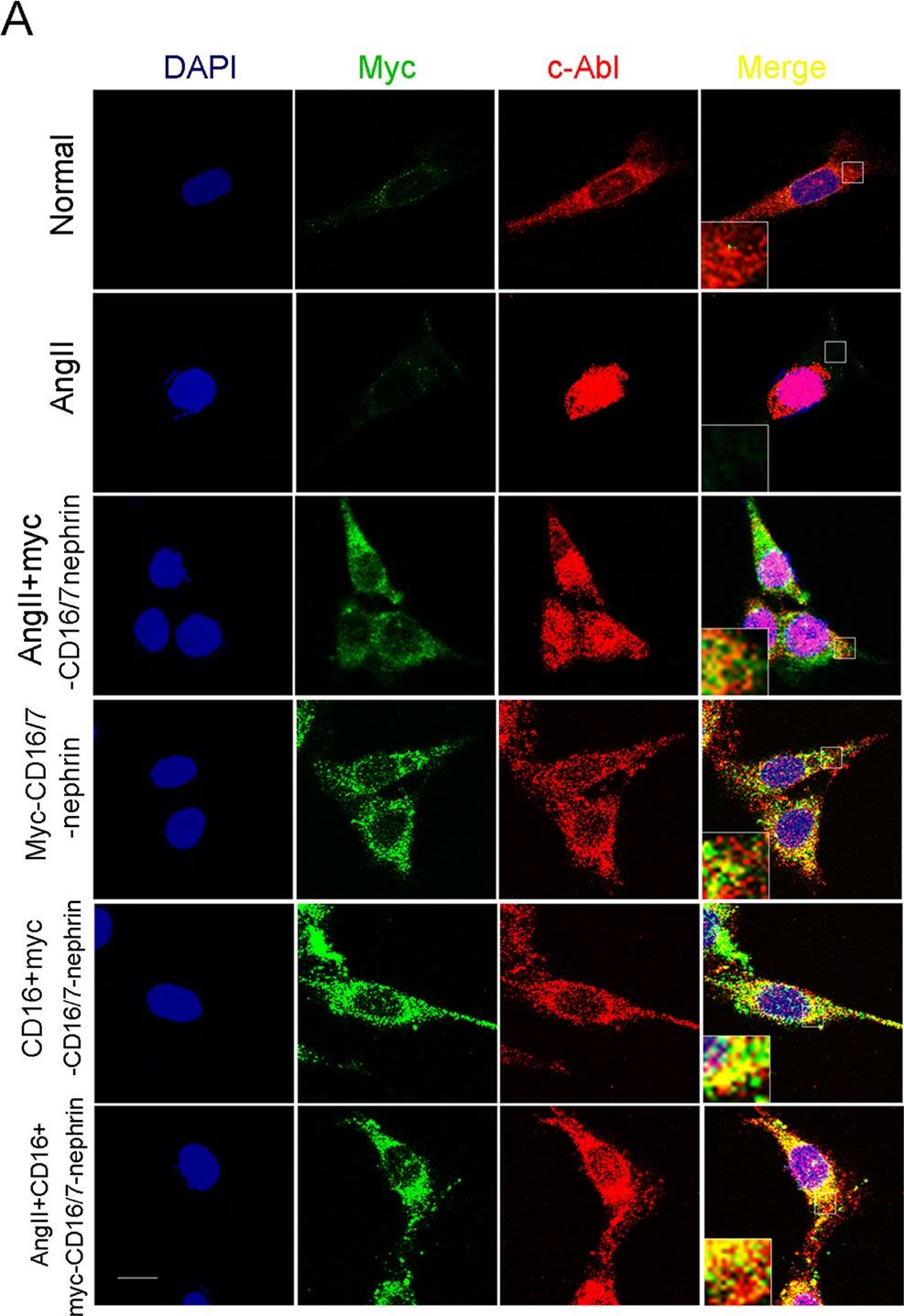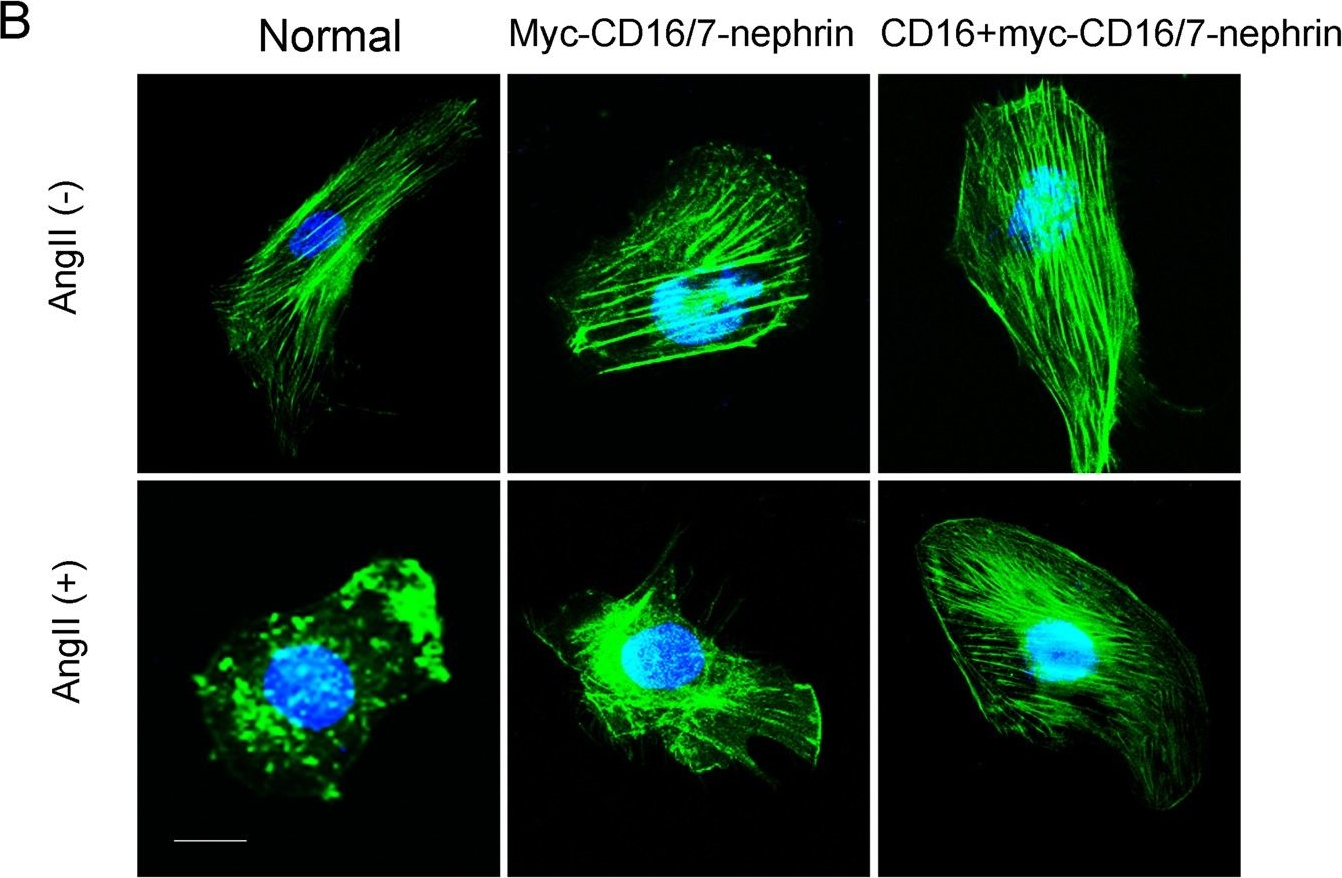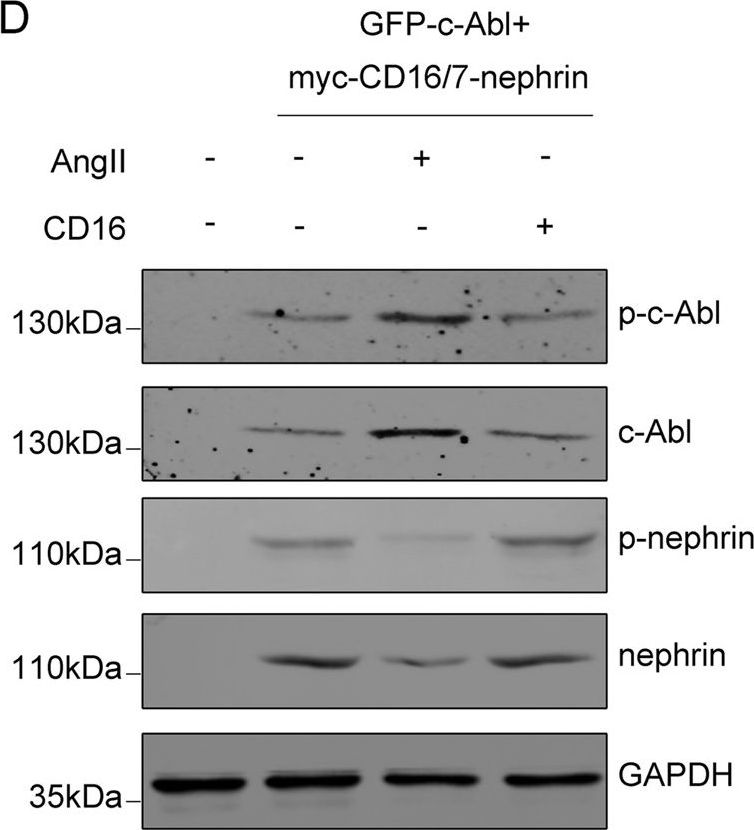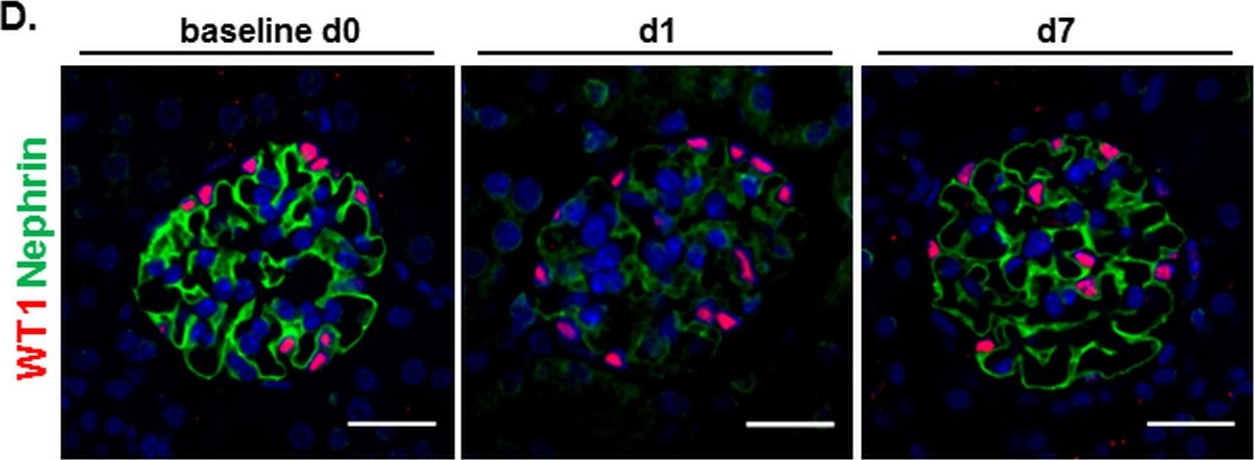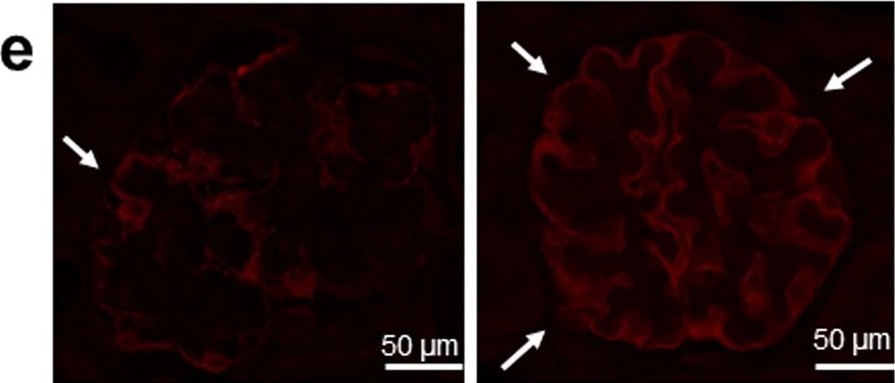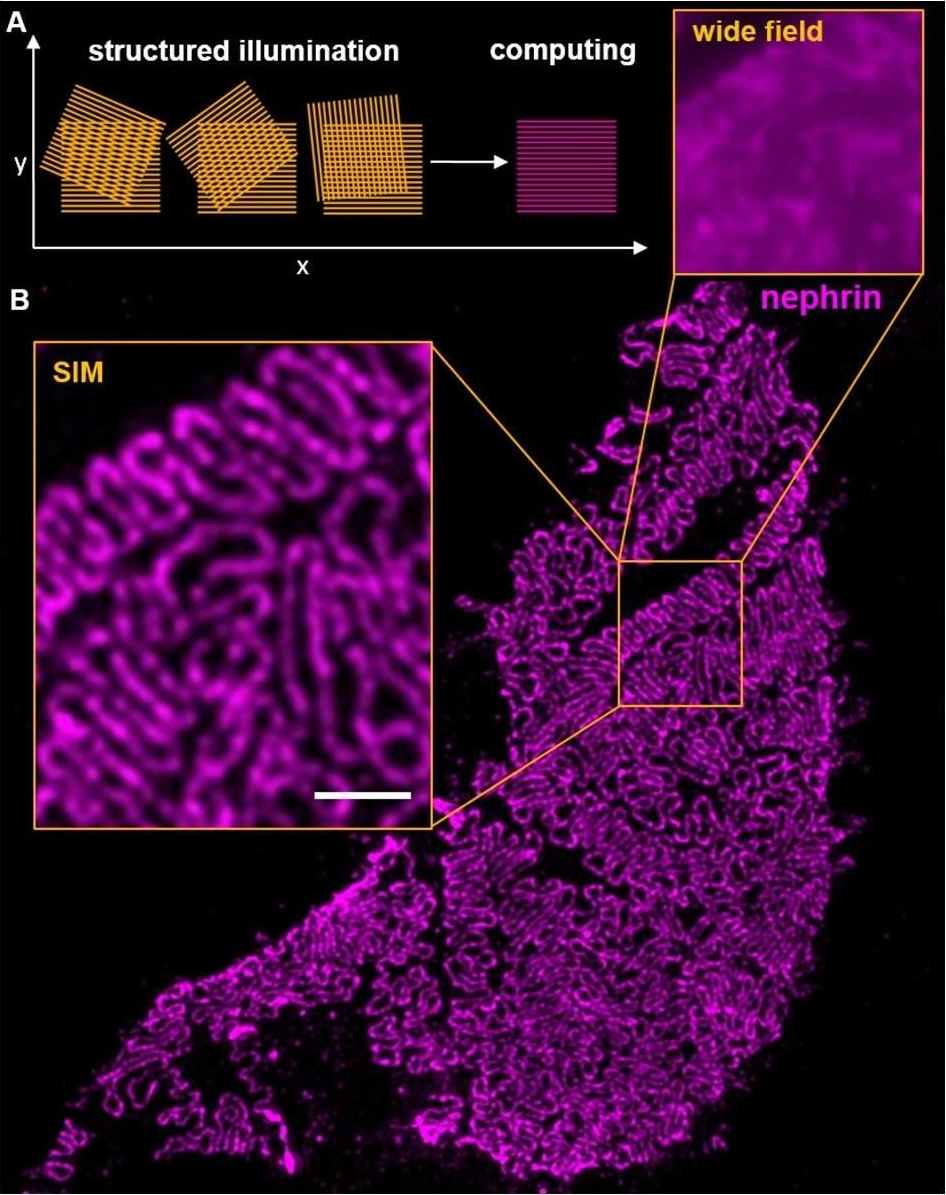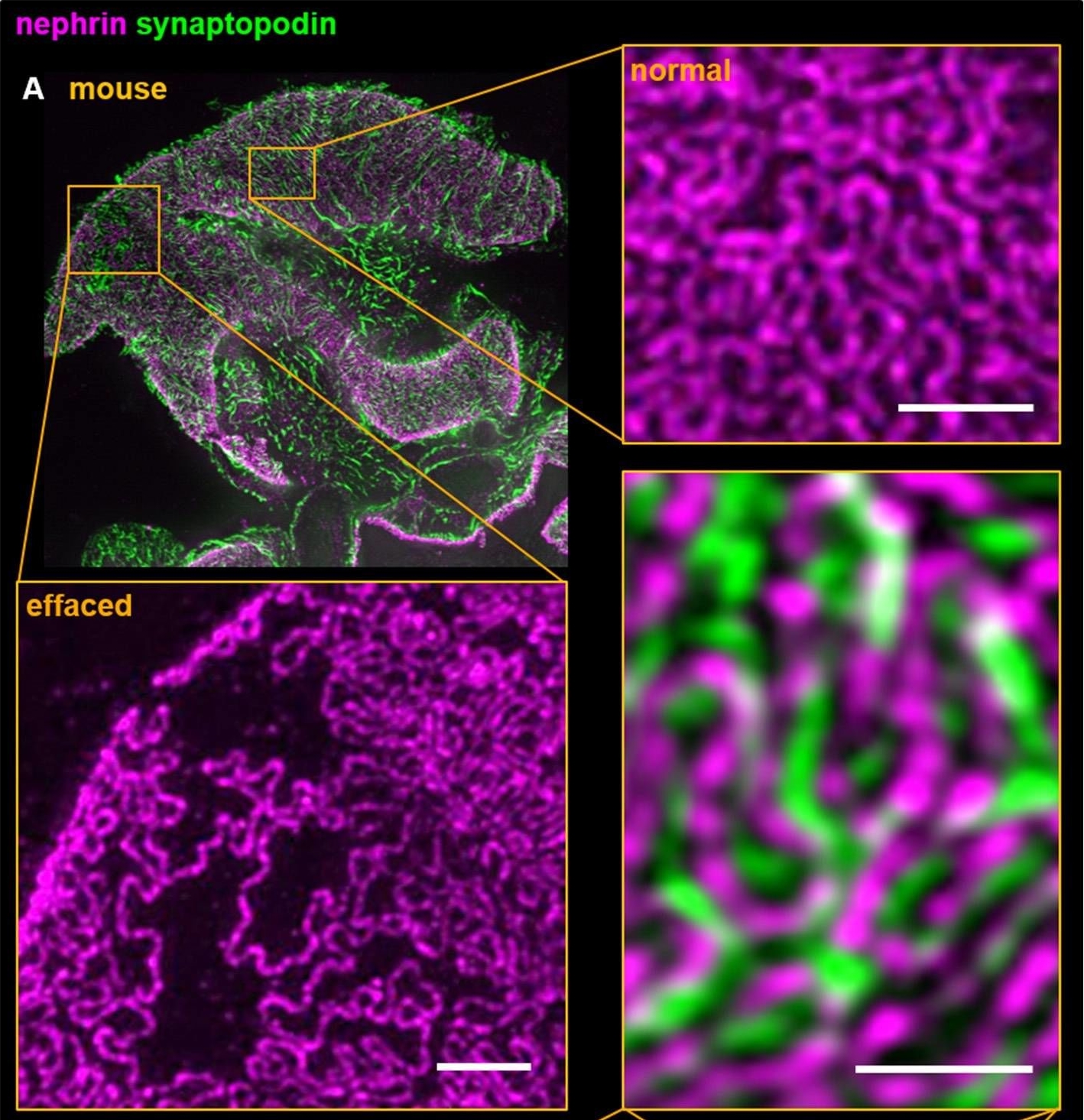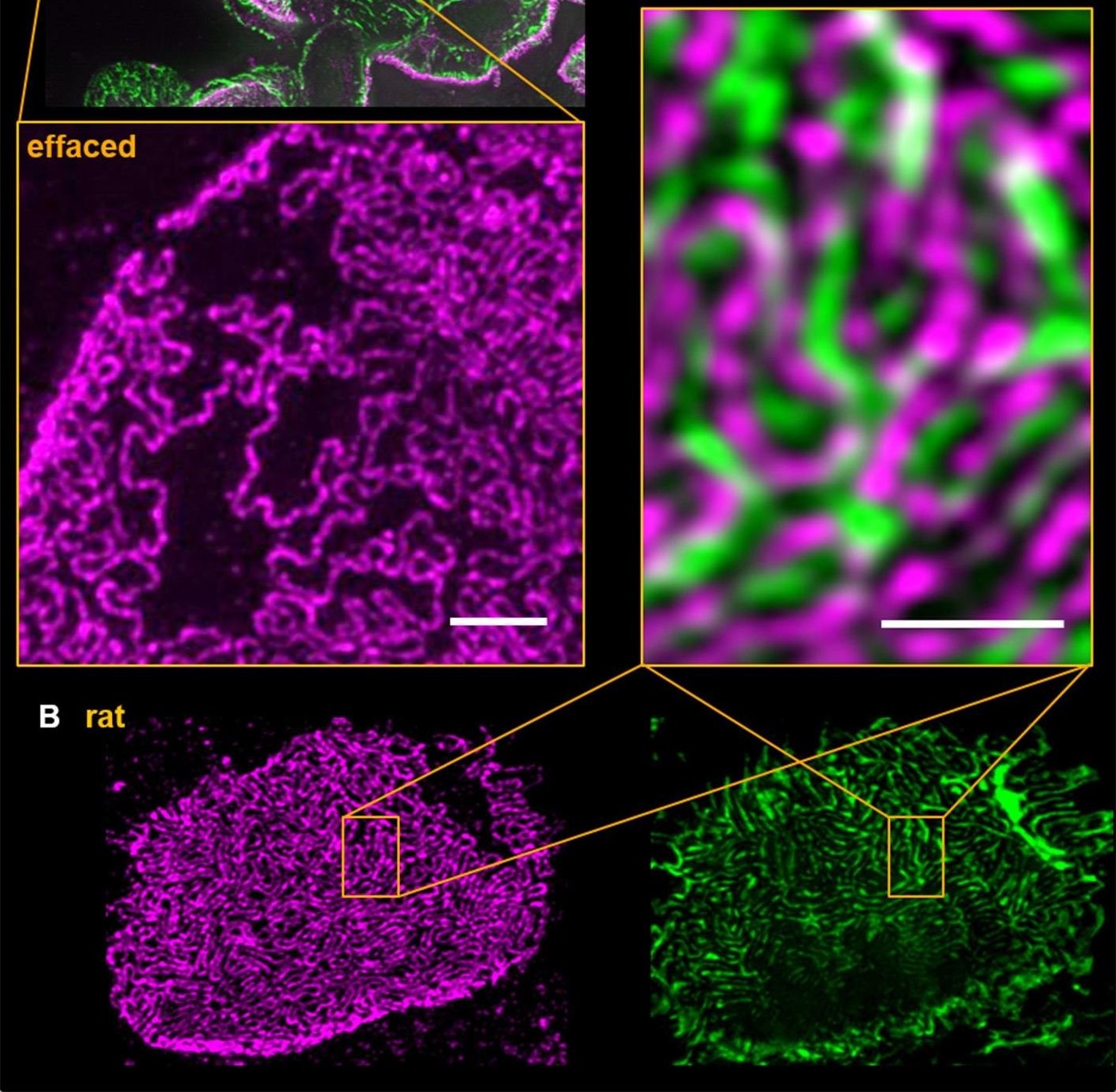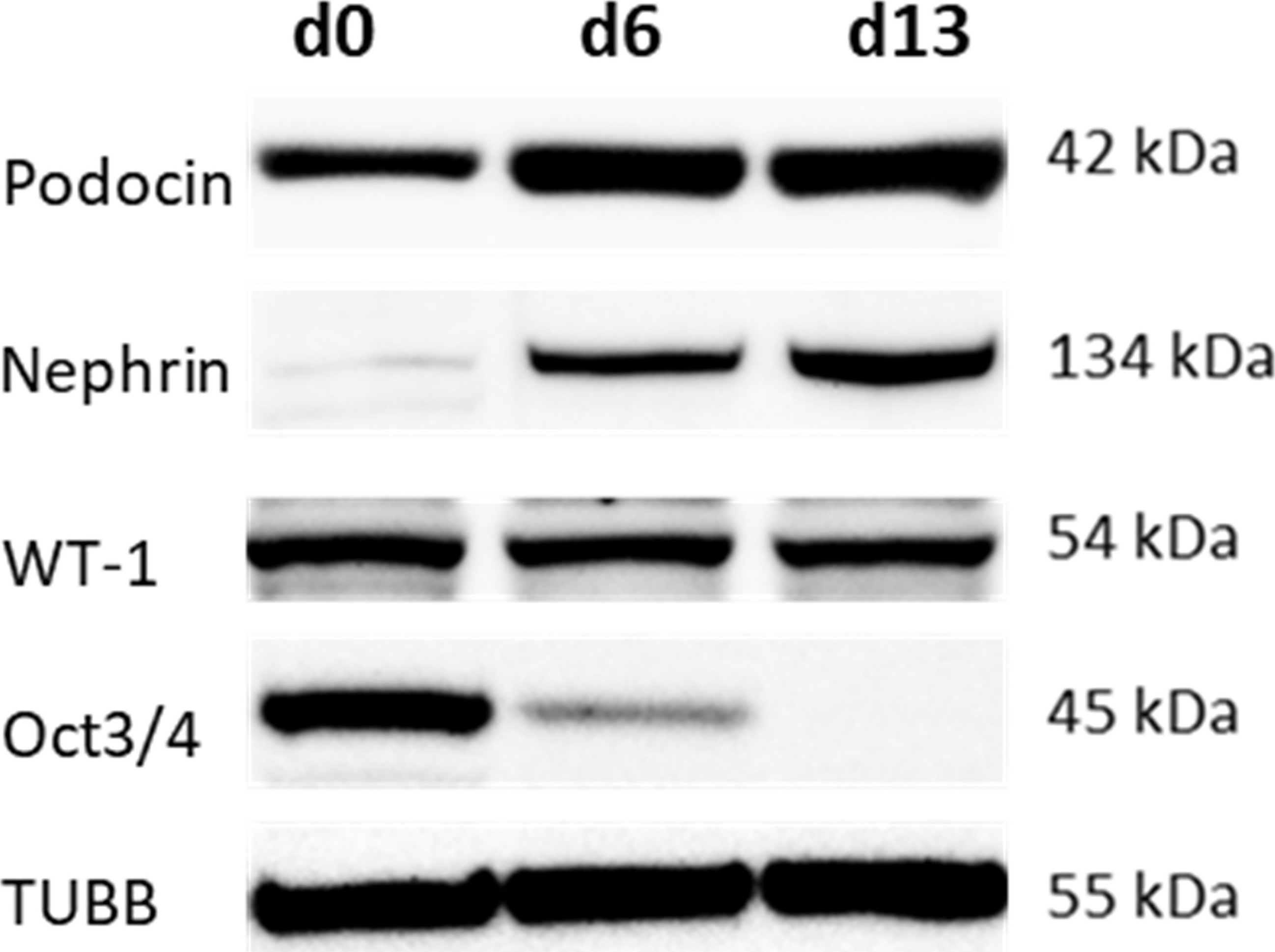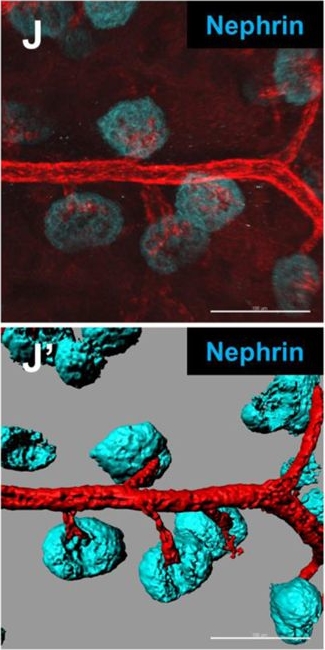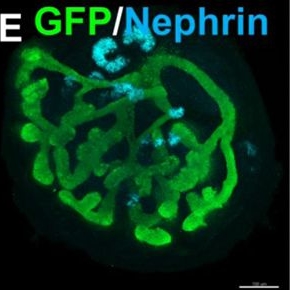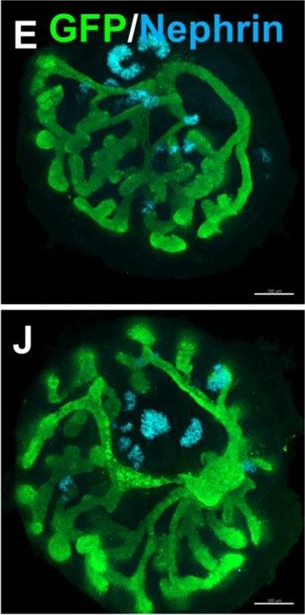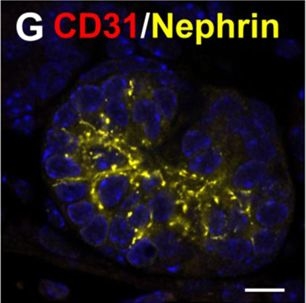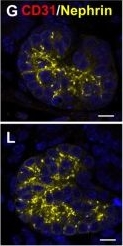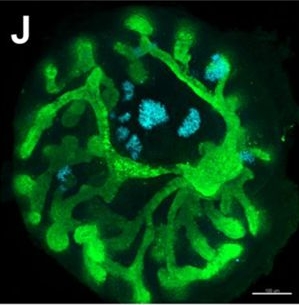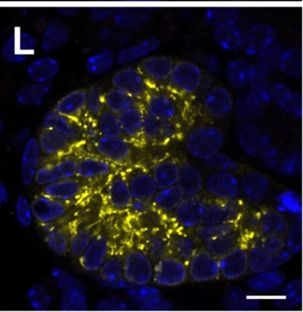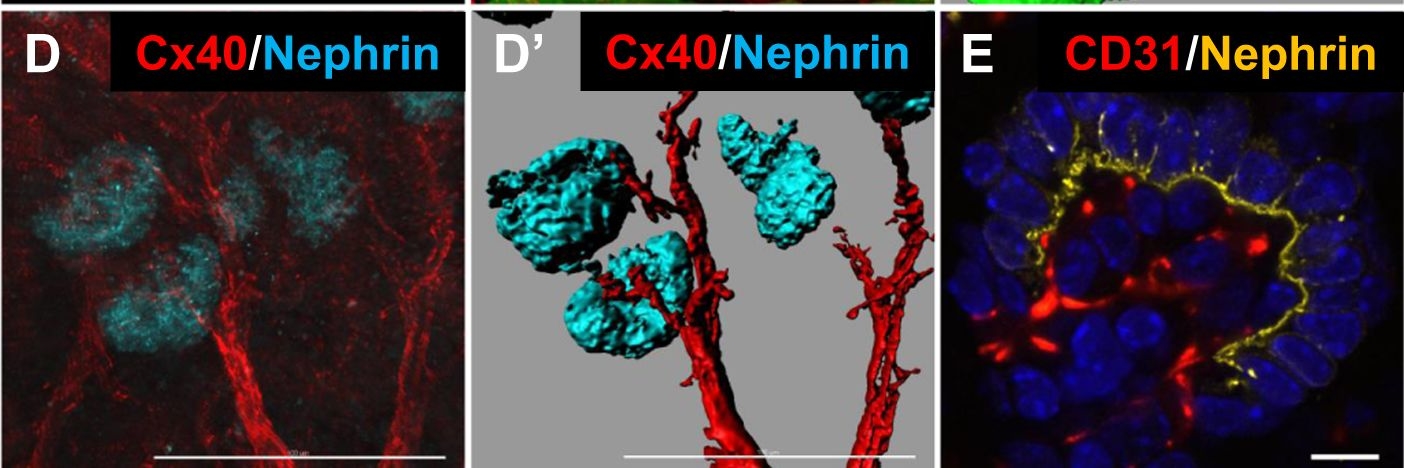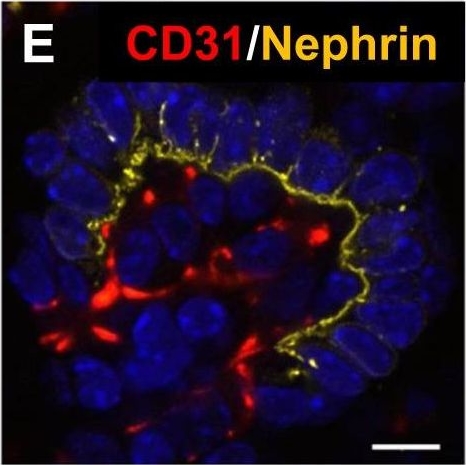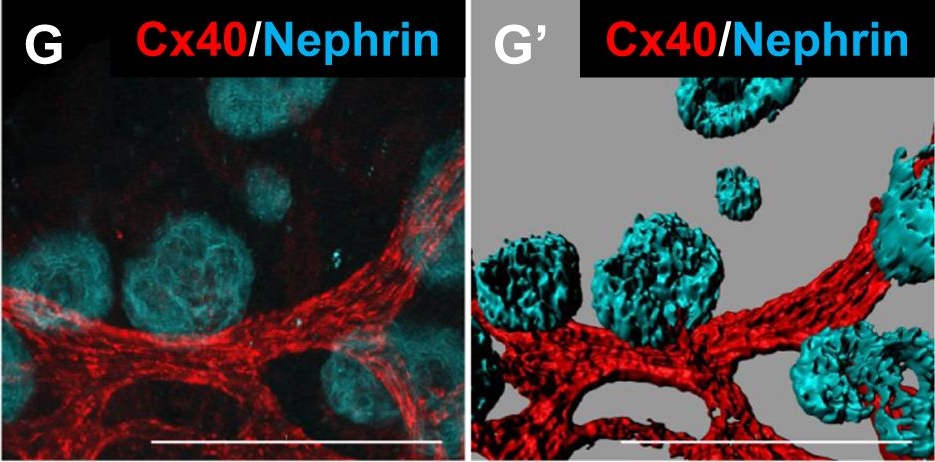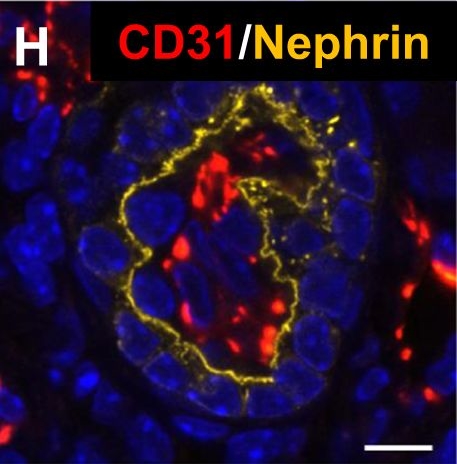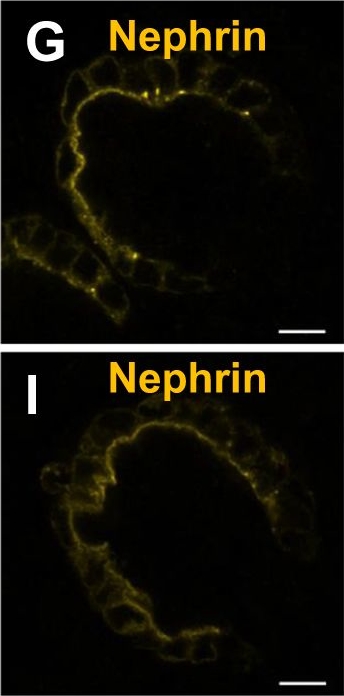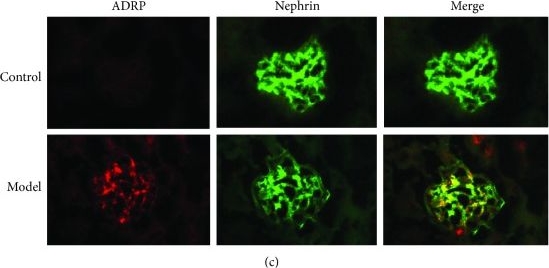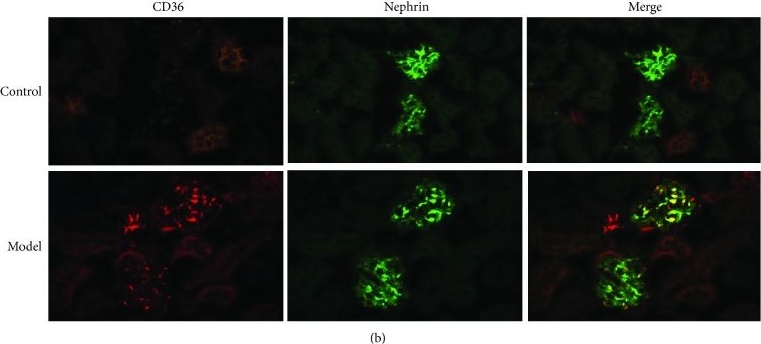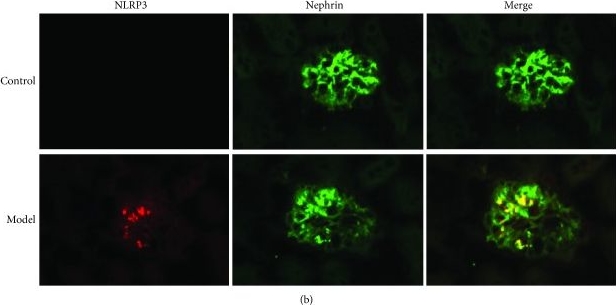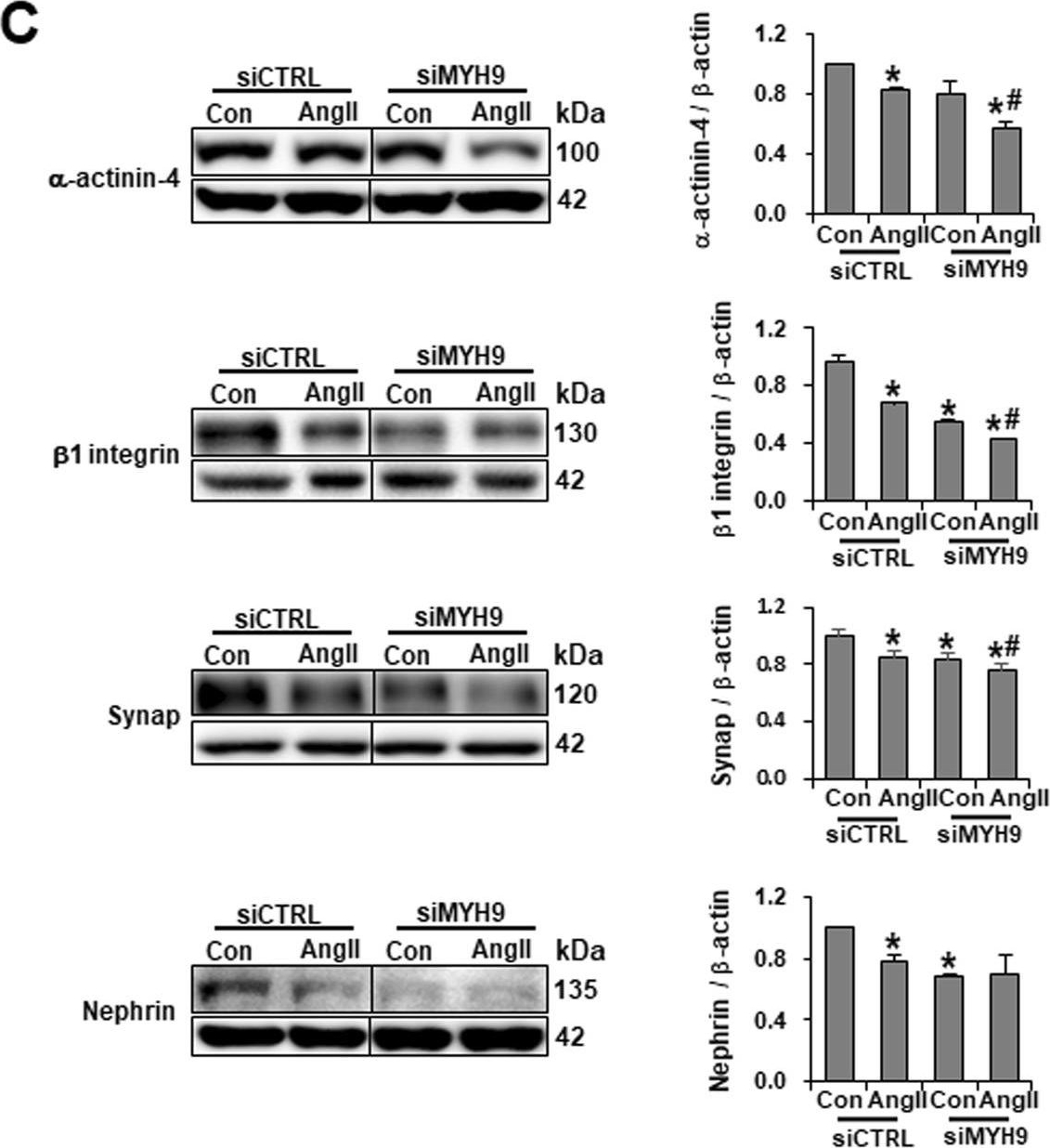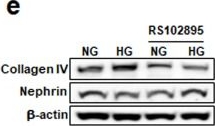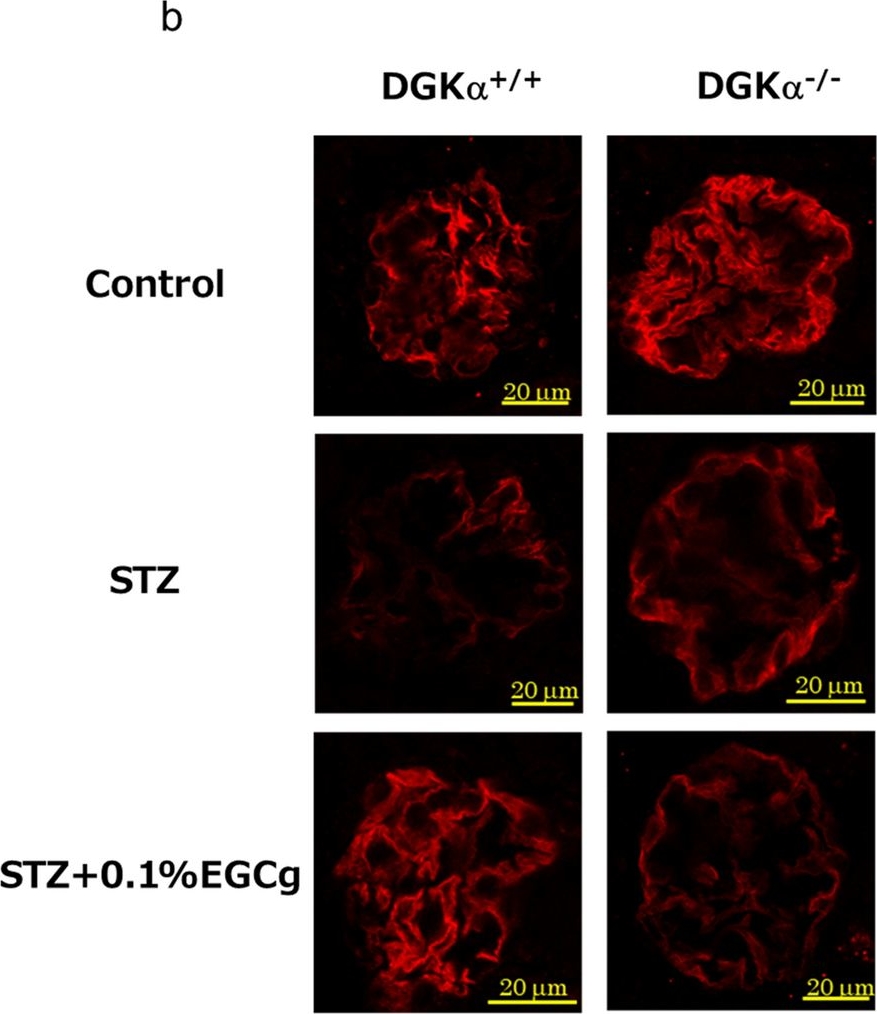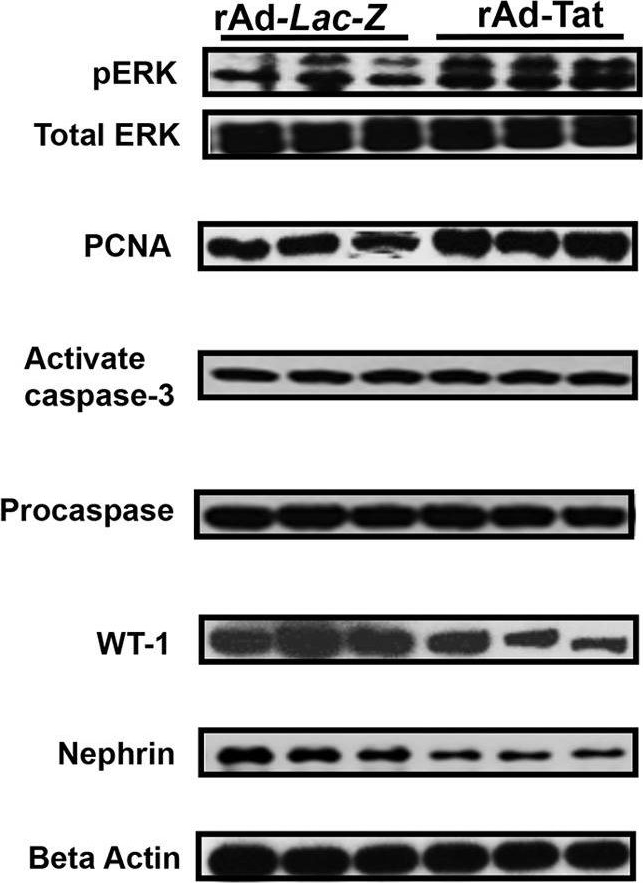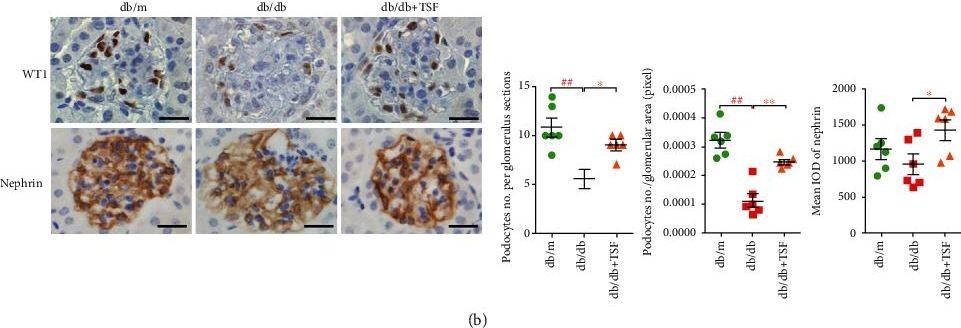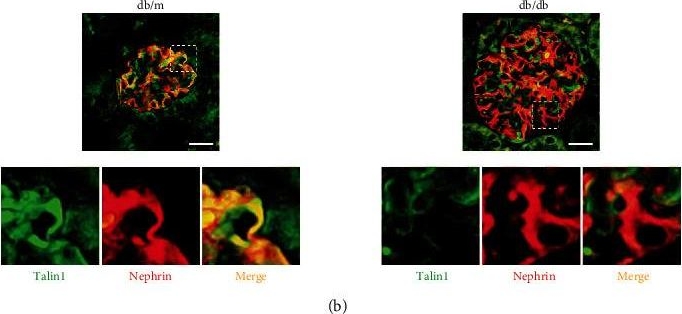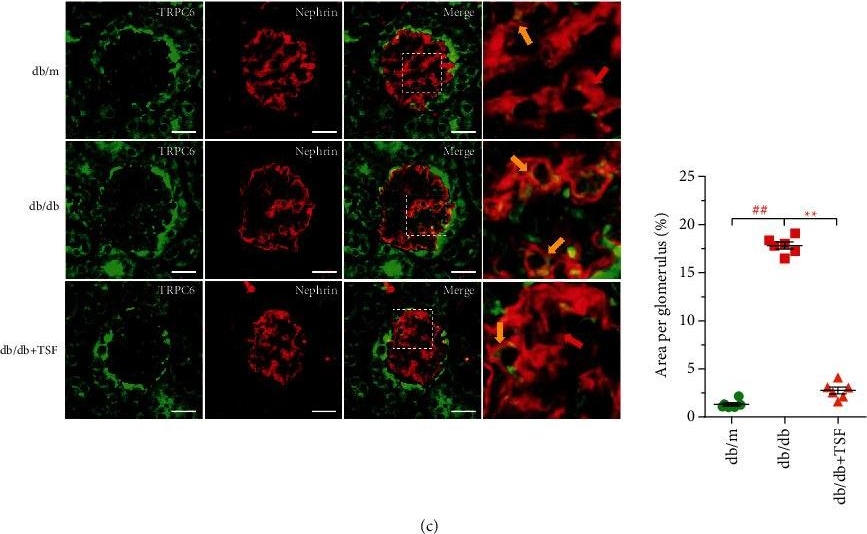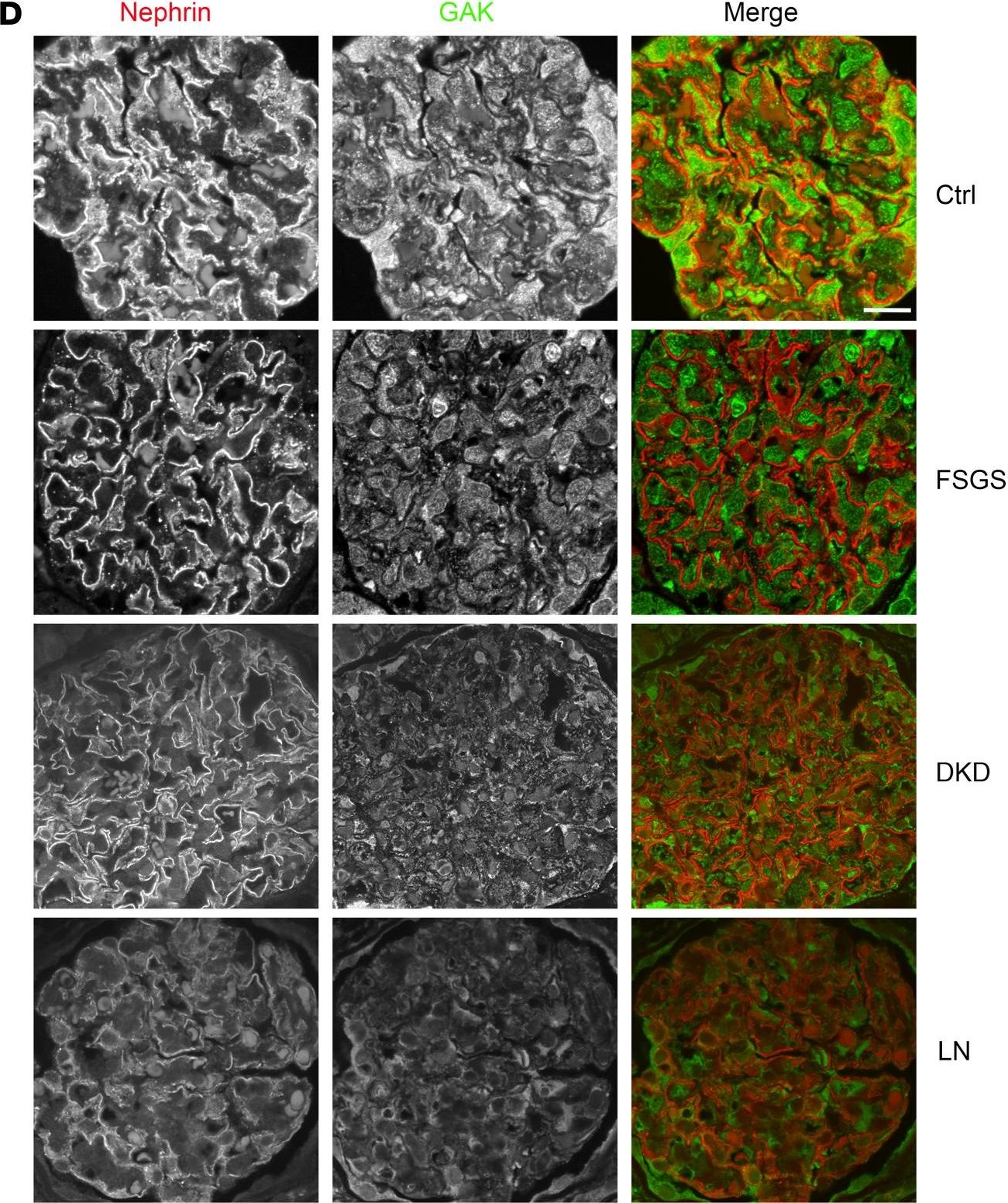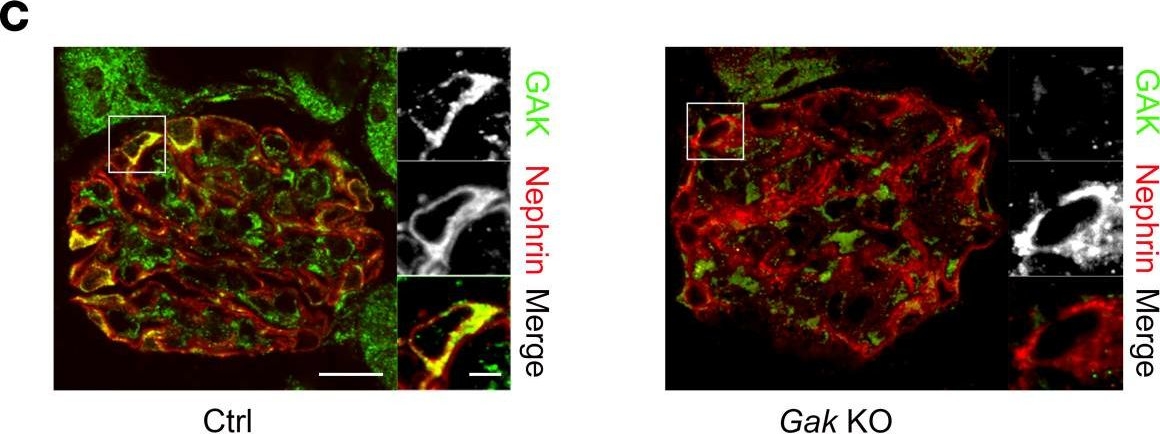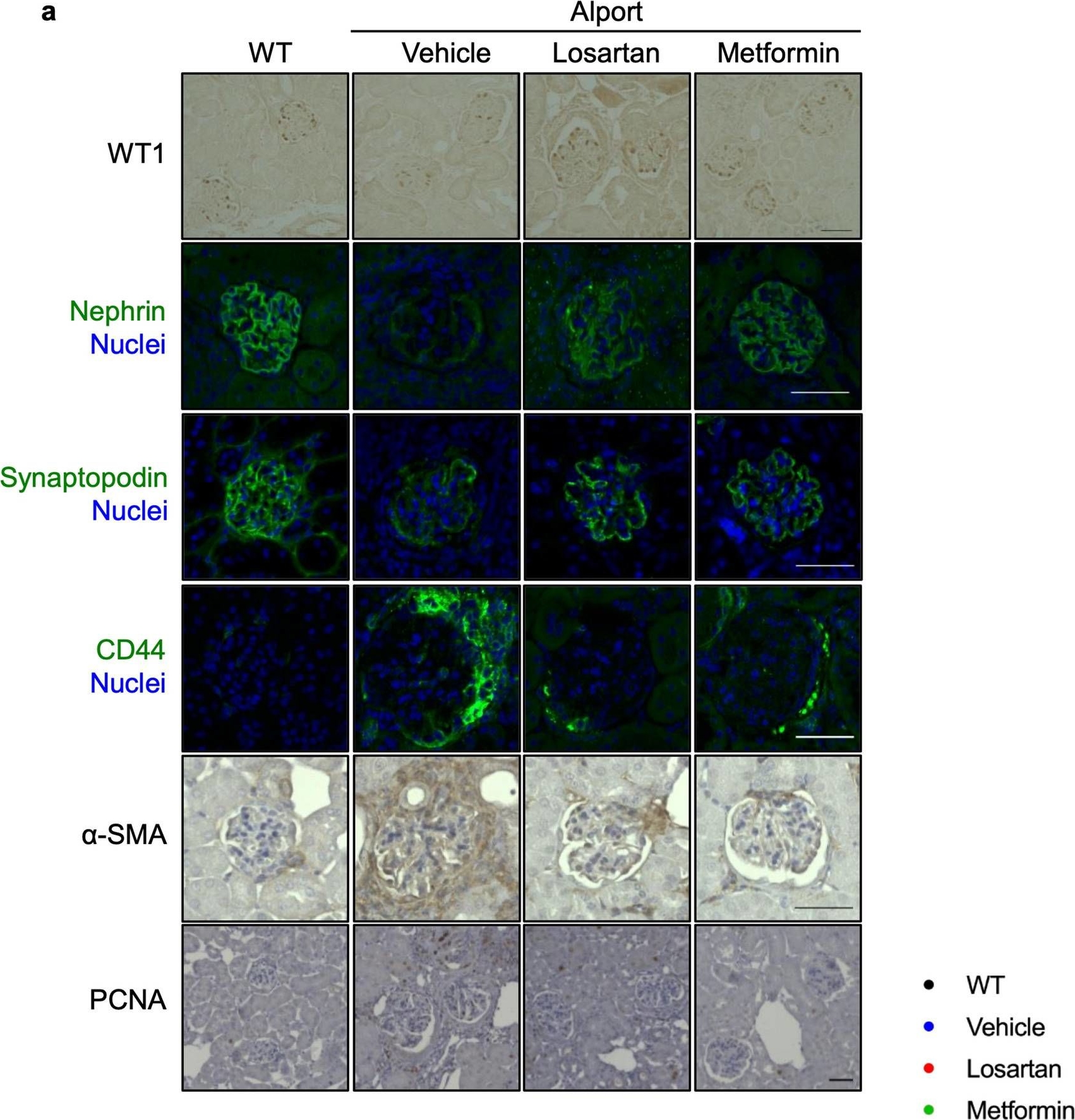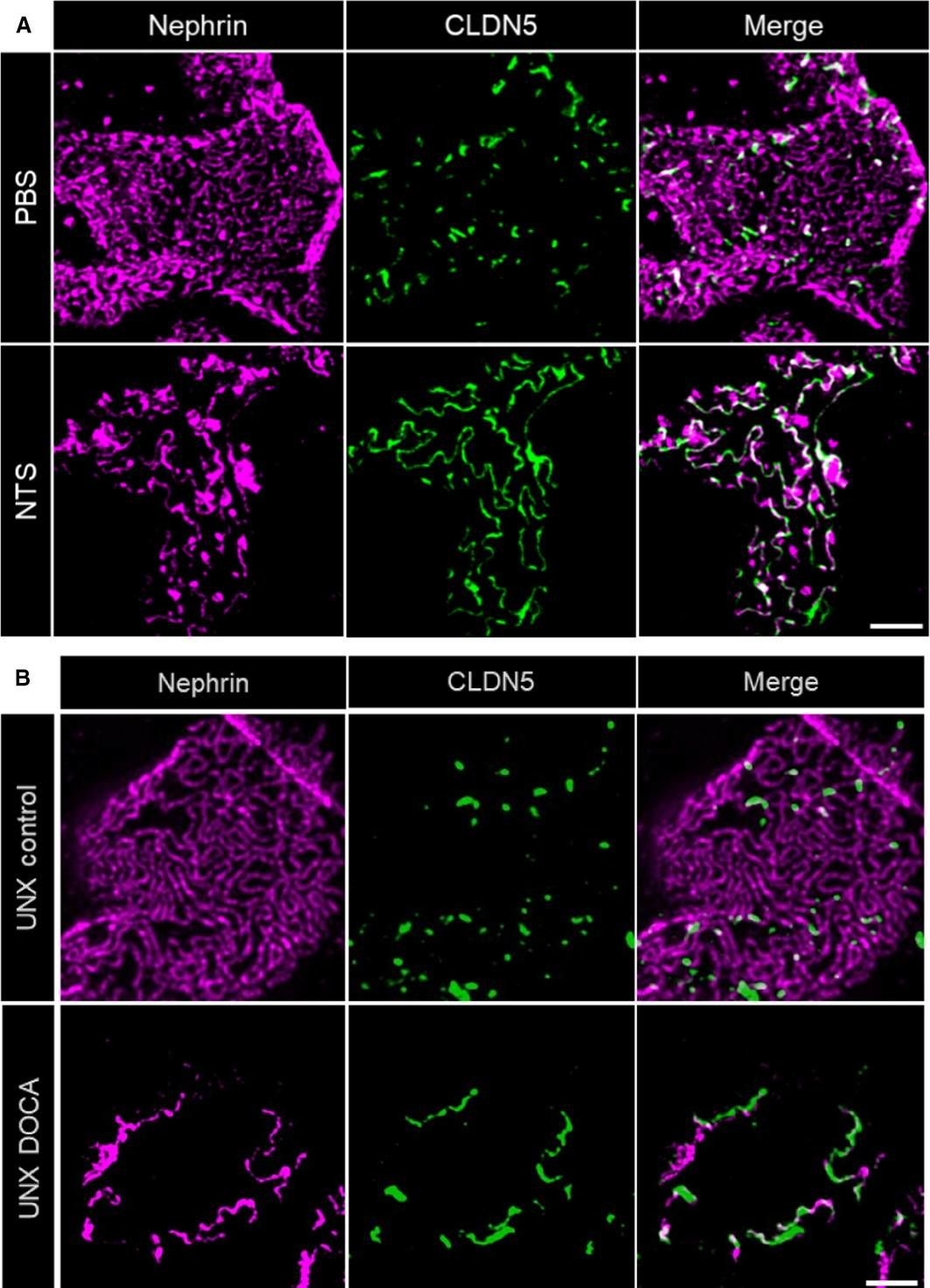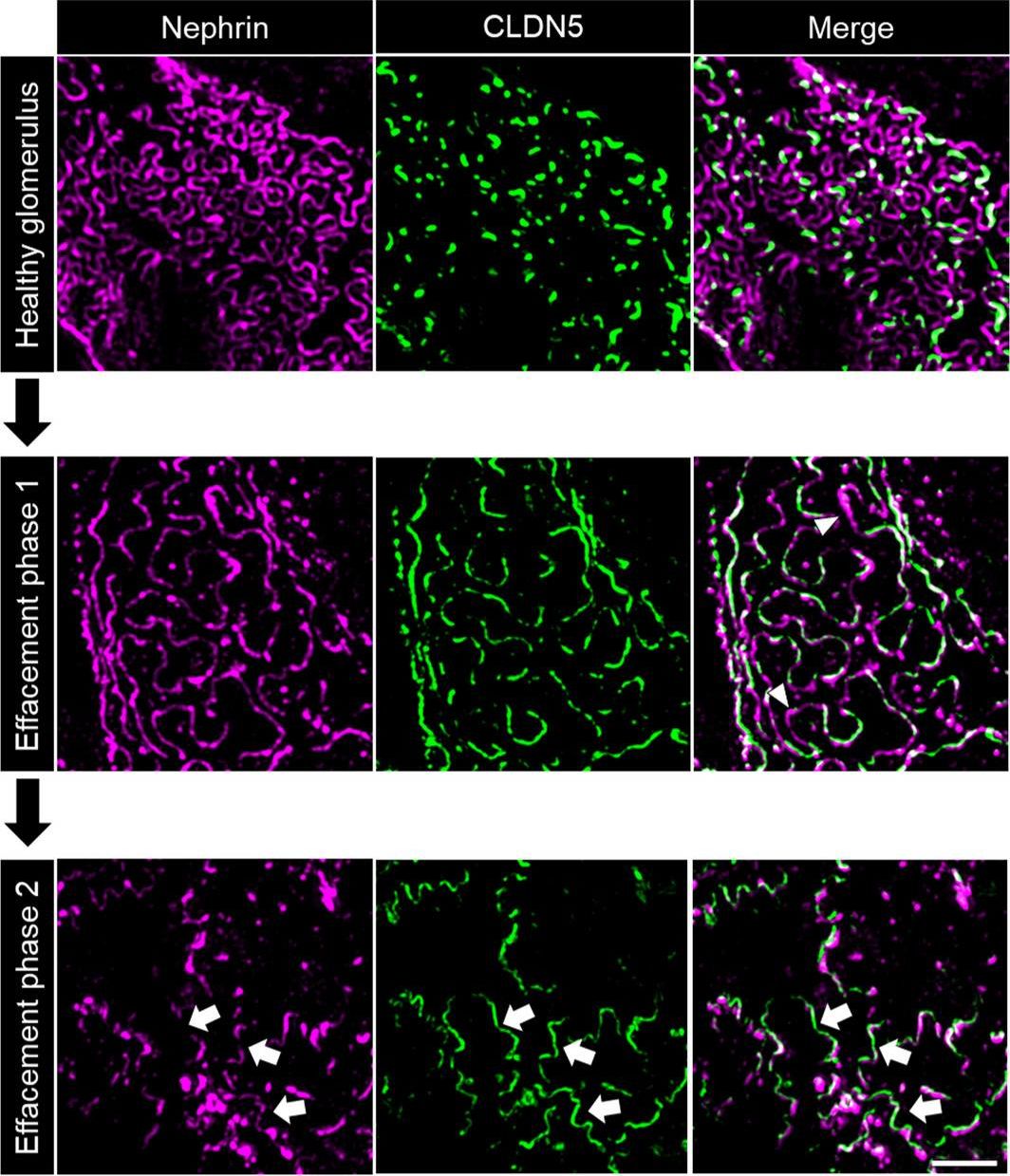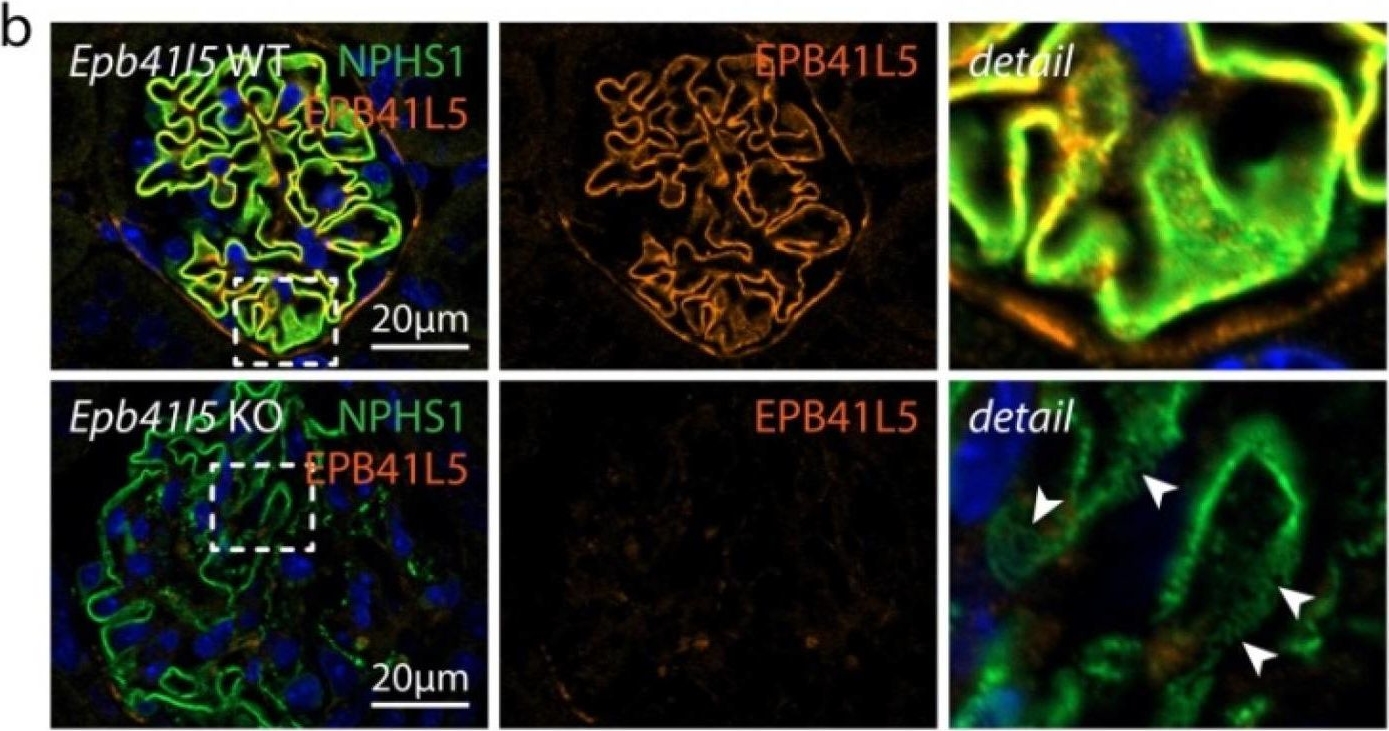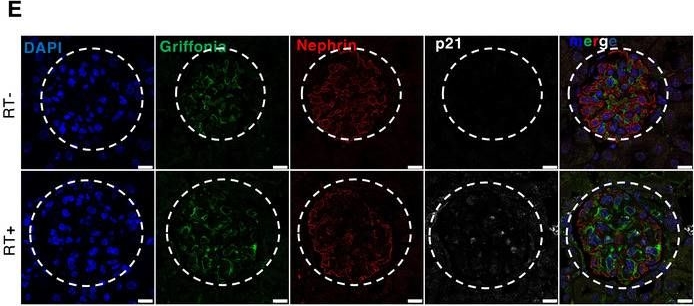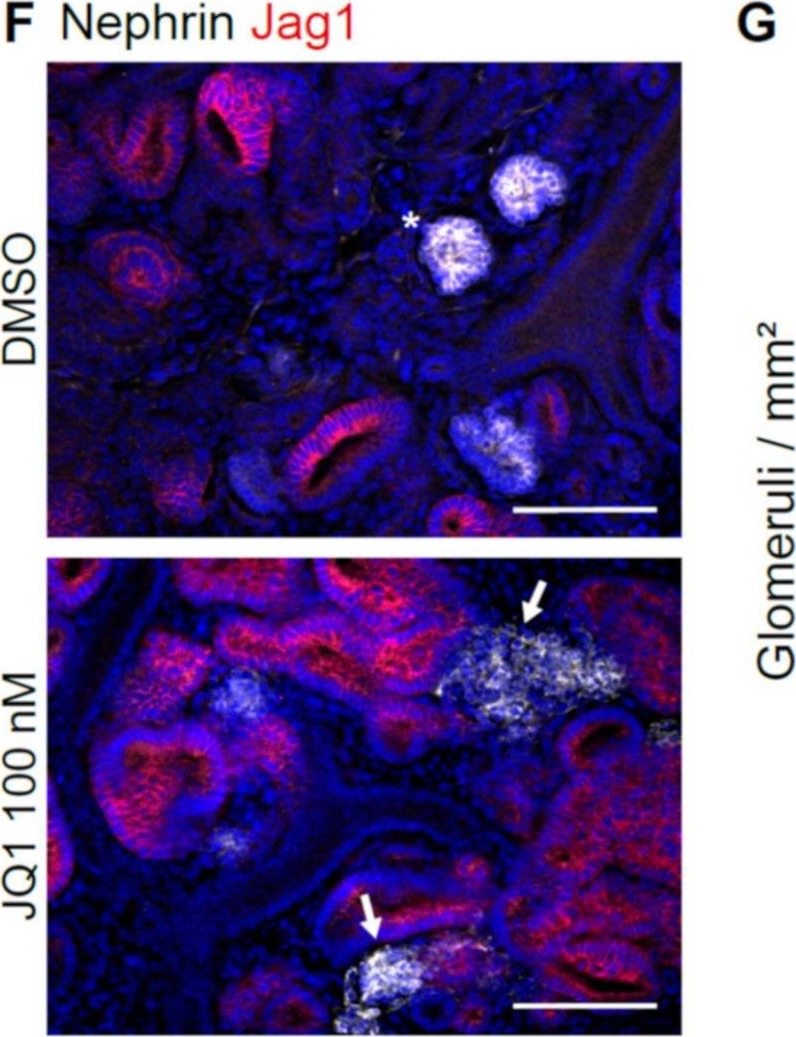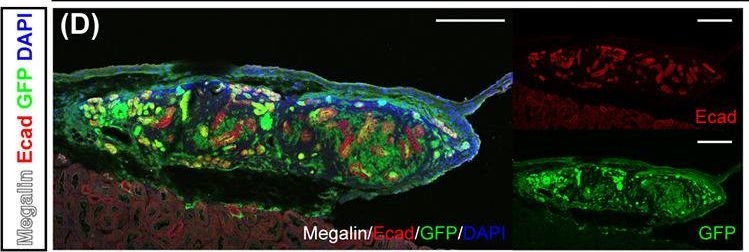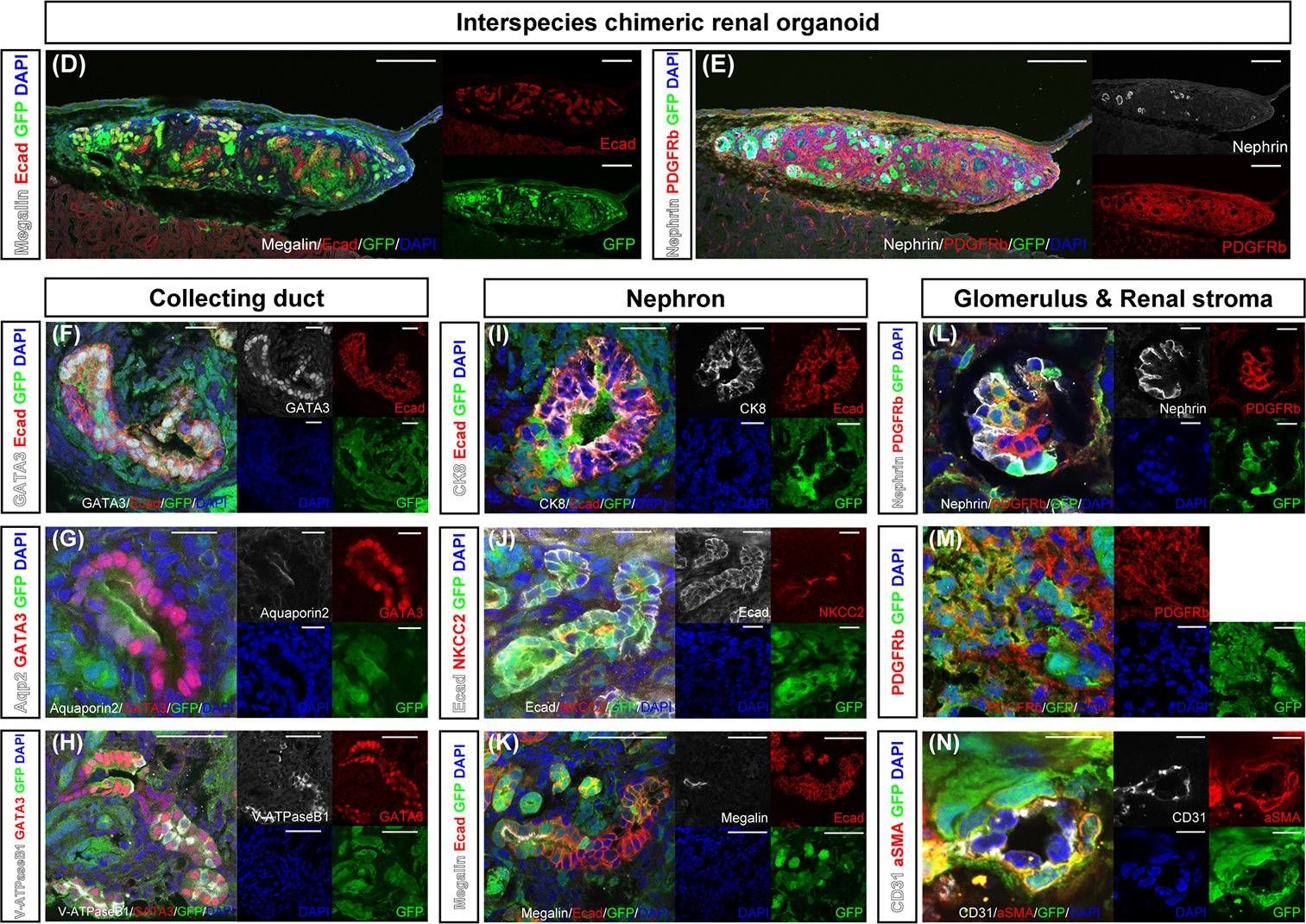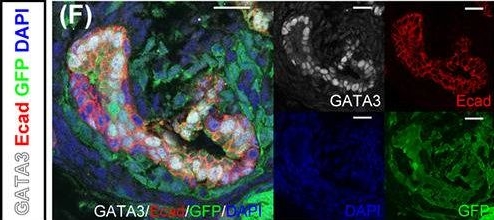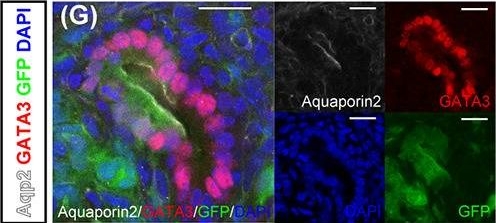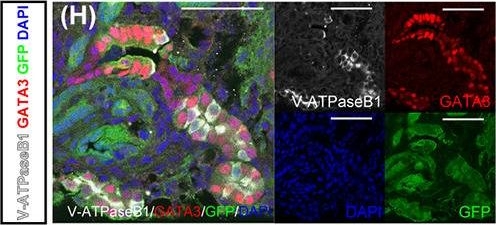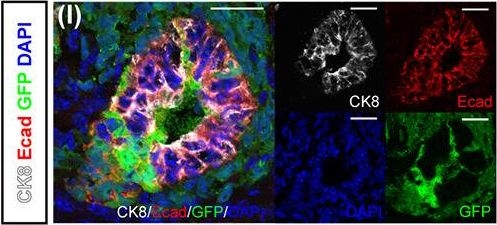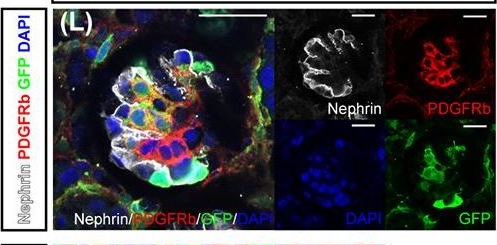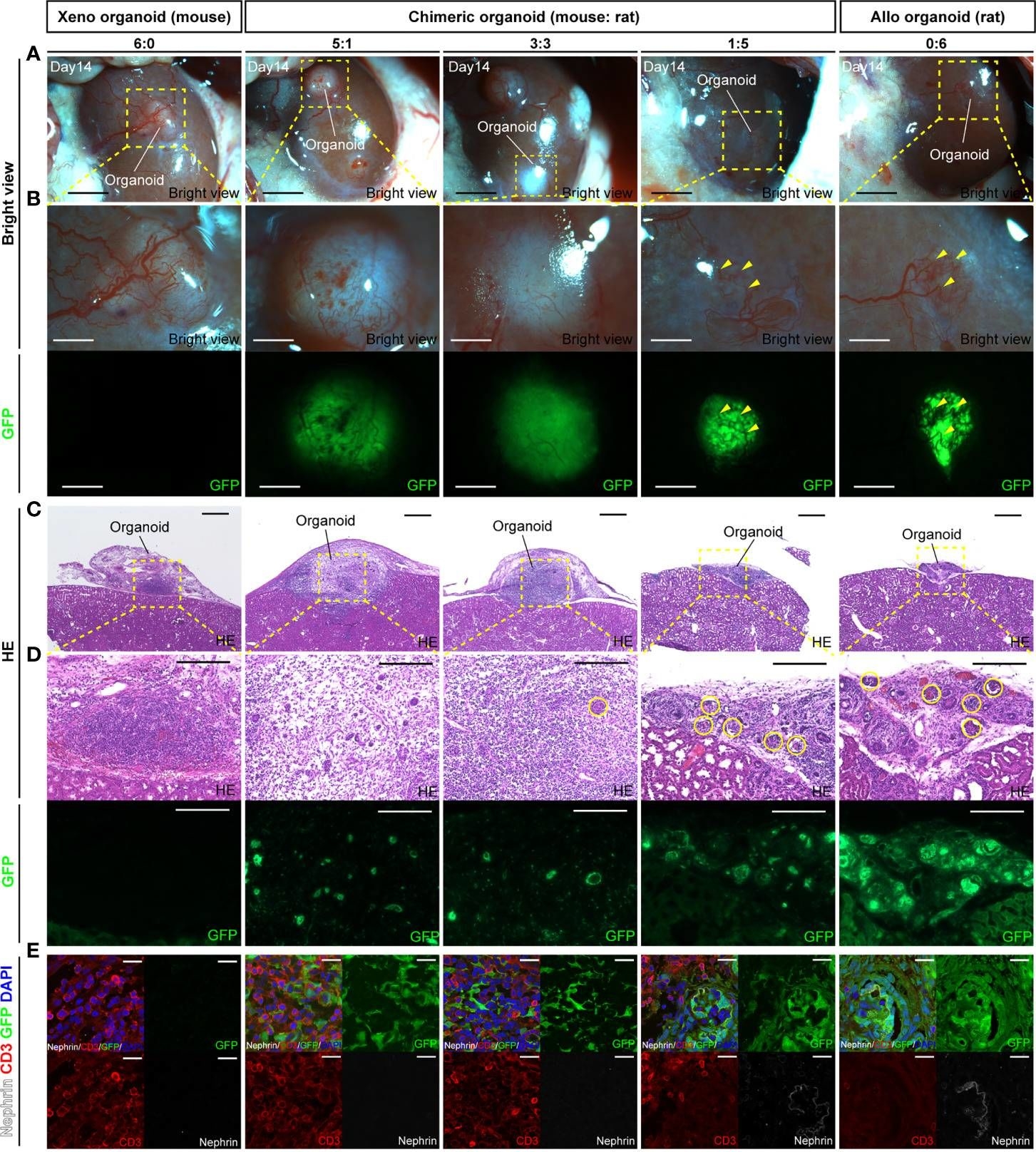Highly published
anti-Nephrin guinea pig polyclonal, serum
Key Features
- Guinea pig polyclonal
- Suitable for ICC/IF, IHC and WB
- Reacts with human and mouse
Product description
| Quantity | 100 µl |
|---|---|
| Antibody Type | Polyclonal |
| Host | Guinea pig |
| Conjugate | Unconjugated |
| Application | ICC/IF, IHC, WB |
| Purification | Stabilized antiserum |
| Reactivity | Human, Mouse |
| Storage | Short term at 2-8°C; long term storage in aliquots at -20°C; avoid freeze/thaw cycles |
| Intended use | Research use only |
| Immunogen | Synthetic peptide of mouse Nephrin (intracellular domain, aa1243-1256, EPGSLPFELRGHLV) |
| Formulation | Contains 0.09% sodium azide |
| UniprotID | O60500 (Human), Q9QZS7 (Mouse) |
| Synonym | Nephrin, Renal glomerulus-specific cell adhesion receptor, NPHS1, NPHN |
| Note | Centrifuge prior to opening |
Applications
| Tested applications | Tested dilutions |
|---|---|
| Immunocytochemistry (ICC)/ Immunofluorescence (IF) | Assay dependent |
| Immunohistochemistry (IHC) - frozen | 1:50 |
| Immunohistochemistry (IHC) - paraffin | 1:50 (microwave treatment recommended) |
| Western Blot (WB) | 1:500 |
Background
The antibody reacts specifically with nephrin, first described as a kidney podocyte marker protein (MW 135,000 calculated from aa sequence data; apparent Mr 185,000 after SDS-PAGE).
Nephrin is a transmembrane cell adhesion molecule located at the slit diaphragm.
Immunolocalization: the antibody stains positively podocytes of the kidney, radial glial cells of the brain, Sertoli cells of testis, and beta islet cells of the pancreas.
Tested cultured cell lines: PCL (podocyte cell line), M-1 (cortical collecting duct cells).
References/Publications (84)
Publication
Species
Application
Species
Mouse
Application
IHC-IF
Species
Mouse
Application
IF
Species
Mouse
Application
WB
Species
mouse
Application
ICC-IF
Species
mouse
Application
IHC (frozen)/IF
Species
rat
Application
IHC (frozen)/IF
Species
mouse
Application
IHC-IF
Species
human
Application
IHC-IF
Species
human
Application
WB, IHC-IF
Species
mouse
Application
IHC-IF (paraffin)
Species
mouse
Application
WB
Species
rat
Application
IHC/IF
Species
mouse
Application
WB
Species
mouse
Application
WB, IHC-IF (paraffin)
Species
human
Application
IHC-IF
Species
mouse
Application
IHC-IF
Species
mouse
Application
IHC-IF (paraffin)
Species
mouse
Application
WB
Species
mouse
Application
IHC-IF (paraffin)
Species
mouse
Application
IHC-IF (paraffin)
Species
mouse
Application
IHC-IF (frozen)
Species
human
Application
ICC-IF
Species
mouse
Application
IHC-IF
Species
mouse
Application
IHC-IF (paraffin)
Species
mouse
Application
IHC
Species
mouse
Application
IHC-IF (paraffin)
Publication
Rauch, C. et al. Differentiation of human iPSCs into functional podocytes. PLoS.One. 13, e0203869 (2018).
Species
human
Application
WB
Species
human,mouse
Application
WB
Species
mouse
Application
IHC-IF (frozen)
Species
human,mouse,rat
Application
IHC (paraffin)
Species
mouse
Application
IHC (paraffin)
Species
human
Application
IHC (paraffin)
Species
human
Application
IHC-IF (frozen)
Species
mouse
Application
IHC-IF (frozen)
Species
mouse
Application
FACS
Species
grivet monkey
Application
WB
Species
mouse,rat
Application
IHC-IF (paraffin)
Species
mouse
Application
IHC-IF (paraffin)
Species
mouse
Application
IHC (paraffin)
Species
human
Application
IHC-IF (paraffin)
Species
mouse
Application
IHC (paraffin)
Species
human
Application
ICC-IF
Species
mouse
Application
WB
Species
mouse
Application
IHC (paraffin)
Species
mouse
Application
whole mount
Species
human,mouse
Application
IHC-IF (paraffin)
Publication
Kliewe, F. et al. Studying the role of fascin-1 in mechanically stressed podocytes. Sci.Rep. 7, 9916 (2017).
Species
human,mouse
Application
IHC-IF (paraffin)
Species
human
Application
IHC-IF (paraffin)
Species
human
Application
ICC-IF
Species
human,mouse
Application
WB
Species
human
Application
IHC-IF (paraffin)
Species
mouse
Application
WB,IHC (paraffin),IP
Species
human
Application
IHC,ICC-IF,FACS
Species
mouse
Application
IHC (paraffin)
Species
mouse
Application
IHC (frozen)
Species
rat
Application
IHC (frozen)
Species
mouse
Application
IHC (frozen)
Species
mouse
Application
IHC (paraffin)
Species
mouse
Application
IHC (frozen)
Species
mouse
Application
IHC (frozen),IEM
Species
mouse
Application
IHC (frozen)
Species
mouse
Application
WB
Species
mouse
Application
IHC (paraffin)
Species
mouse
Application
WB
Species
mouse
Application
WB
Species
mouse
Application
IHC (paraffin)
Species
mouse
Application
IHC (frozen)
Species
mouse
Application
IHC (paraffin)
Species
mouse
Application
WB,IHC (frozen),ICC-IF
Species
mouse
Application
IHC (frozen),IHC (paraffin)
Species
mouse
Application
IHC (paraffin)
Species
mouse
Application
IHC (frozen)
Publication
Matsusaka, T. et al. Podocyte injury damages other podocytes. J. Am. Soc. Nephrol. 22, 1275-85 (2011).
Species
mouse
Application
IHC (paraffin)
Species
human
Application
IHC (frozen)
Species
mouse
Application
WB,IHC (paraffin)
Species
mouse
Application
IHC (paraffin)
Species
mouse
Application
IHC (frozen)
Species
mouse
Application
WB,IHC (frozen)
Species
human
Application
IHC (paraffin)
Species
human
Application
WB,ICC-IF
Species
human
Application
WB,IP
Species
human
Application
IHC
Species
human
Application
IHC
Downloads
File
Category
Size
Filetype
Q & A's
There aren't any asked questions yet.
Customer Reviews
Login
FAQs
Most of our purified mouse antibodies contain 0.5% BSA as stabilizer. If BSA was added to the antibody solution, it is stated in the datasheet.
The supernatant format contains FCS proteins from cell culture medium supplemented with FCS.
The serum antibodies contain other proteins present in serum.
The supernatant format contains FCS proteins from cell culture medium supplemented with FCS.
The serum antibodies contain other proteins present in serum.
Lyophilized antibodies can be stored at 2-8°C until expiration.
Most of our liquid antibodies and reconstituted lyophilized antibodies may be stored for short term storage (up to 3 month) at 2-8°C. For long term storage we recommend to store the antibody at -20°C in aliquots. Please avoid freeze and thaw cycles.
Most of our conjugated antibodies should be stored at 2-8°C.
The individual storage conditions are mentioned on the datasheet.
Most of our liquid antibodies and reconstituted lyophilized antibodies may be stored for short term storage (up to 3 month) at 2-8°C. For long term storage we recommend to store the antibody at -20°C in aliquots. Please avoid freeze and thaw cycles.
Most of our conjugated antibodies should be stored at 2-8°C.
The individual storage conditions are mentioned on the datasheet.
- Kidney frozen in OCT
- 5 µm sections
- Slides fixed 5 min in 100% acetone (precooled to -20°C) and kept at -80°C
- Blocking with 2% FCS or 2% BSA and 0.2% fish gelatine in PBS (as alternative blocking with 2% mouse serum can be performed to reduce background)
- Incubation with GP-N2 in blocking solution for 1h in moist chamber at RT (optimal dilution needs to be tritrated)
- Wash 3x with PBS
- Incubation with fluorescent secondary anti-guinea pig antibody diluted in blocking solution for 1h in moist chamber at RT
- Wash 3x with PBS
- Mounting
The expiration date of our antibodies is indicated on the product label.
- When using podocyte cell lines, the cells needs to be 90% confluent, since nephrin is only expressed if cell-cell contacts are present.
- When using kidney tissue, it is often important to concentrate the glomeruli.
- RIPA buffer is recommended for protein extraction.
- Methanol/ acetone fixation: Immerse slide in precooled (-20°C) methanol for 5 min, immerse in precooled (-20°C) acetone for 30-60 sec, let specimen air dry before antibody incubation.
- Methanol/ acetone fixation plus detergent permeabilization: After methanol/ acetone fixation and air-drying dip slide either in a solution containing 0.1-0.2% Triton X-100 in PBS or in 0.1% saponin in PBS for 1-5 min at room temperature (enhances accessibility of many cytoskeletal antigens).
- Air-drying of the section.
- Block with the serum of the species in which the secondary antibody was raised for 30 min.
- Incubation with 1st antibody 1 h at RT in moist chamber.
- Wash 3x with PBS.
- Incubation with appropriate fluorescent secondary antibody, 30-60 min at RT.
- Wash 3x with PBS.
- Immerse shortly into ethanol.
- Let air dry.
- Cover with mounting medium.
Most of our antibodies contain 0.09% sodium azide as preservative. If a preservative is added, it is mentioned in the datasheet.
We recommend a heat reduced antigen retrieval protocol with citrate buffer pH 6.0.
The optimal antibody dilution for your specific protocol and application needs to be titrated in your lab with your equipment and sample. The optimal dilution may vary between protocols and samples. A good dilution for starting the titration is the dilution mentioned in the datasheet. If the sample needs a specific treatment (eg. Antigen retrieval for IHC on FFPE sections) this should also be mentioned on the antibody datasheet.
PROGEN antibodies are shipped at ambient temperature. The antibodies are stable at ambient temperature for the shipment period. Please store the antibodies as indicated in the datasheet upon arrival.
The concentration of specific antibody in our guinea pig serum is not determined.
In guinea pigs the antibody concentration in serum varies from 10 to 20 mg/ml; specific antibodies represent normally about 0.1-1% of total IgG. Total protein concentration varies from 40 to 65 mg/ml, with the main constituent (about 60%) being albumin.
In guinea pigs the antibody concentration in serum varies from 10 to 20 mg/ml; specific antibodies represent normally about 0.1-1% of total IgG. Total protein concentration varies from 40 to 65 mg/ml, with the main constituent (about 60%) being albumin.

